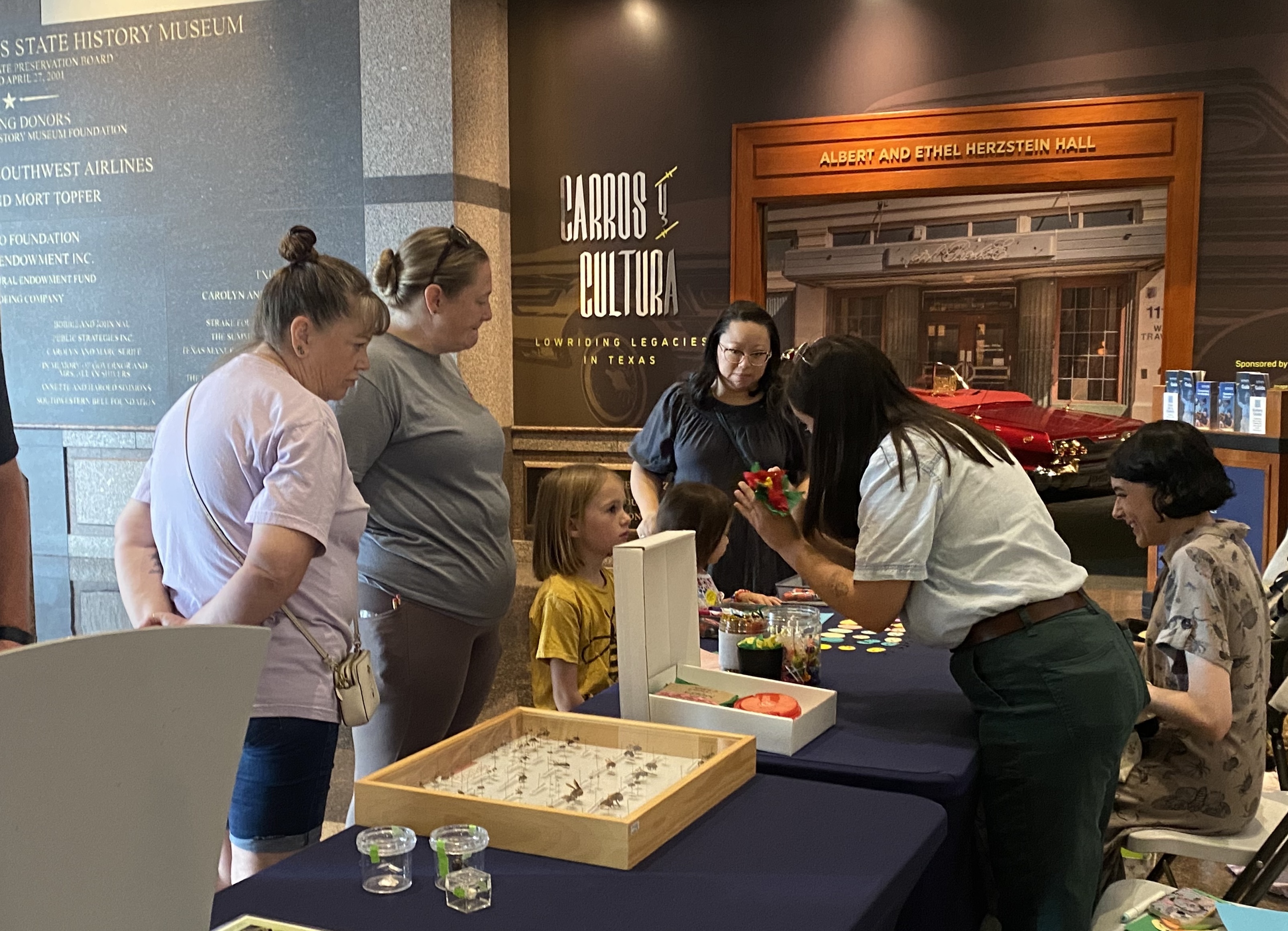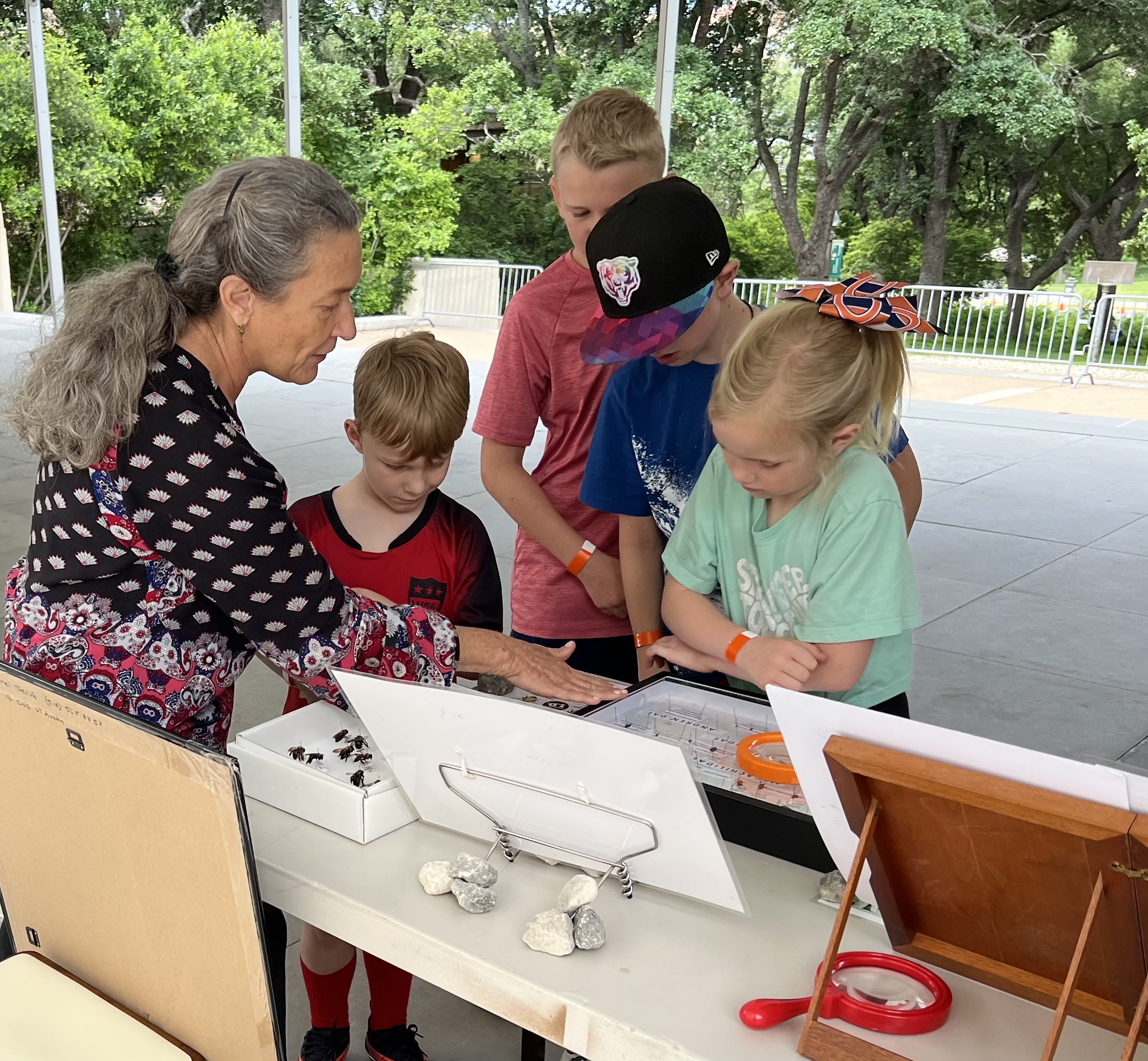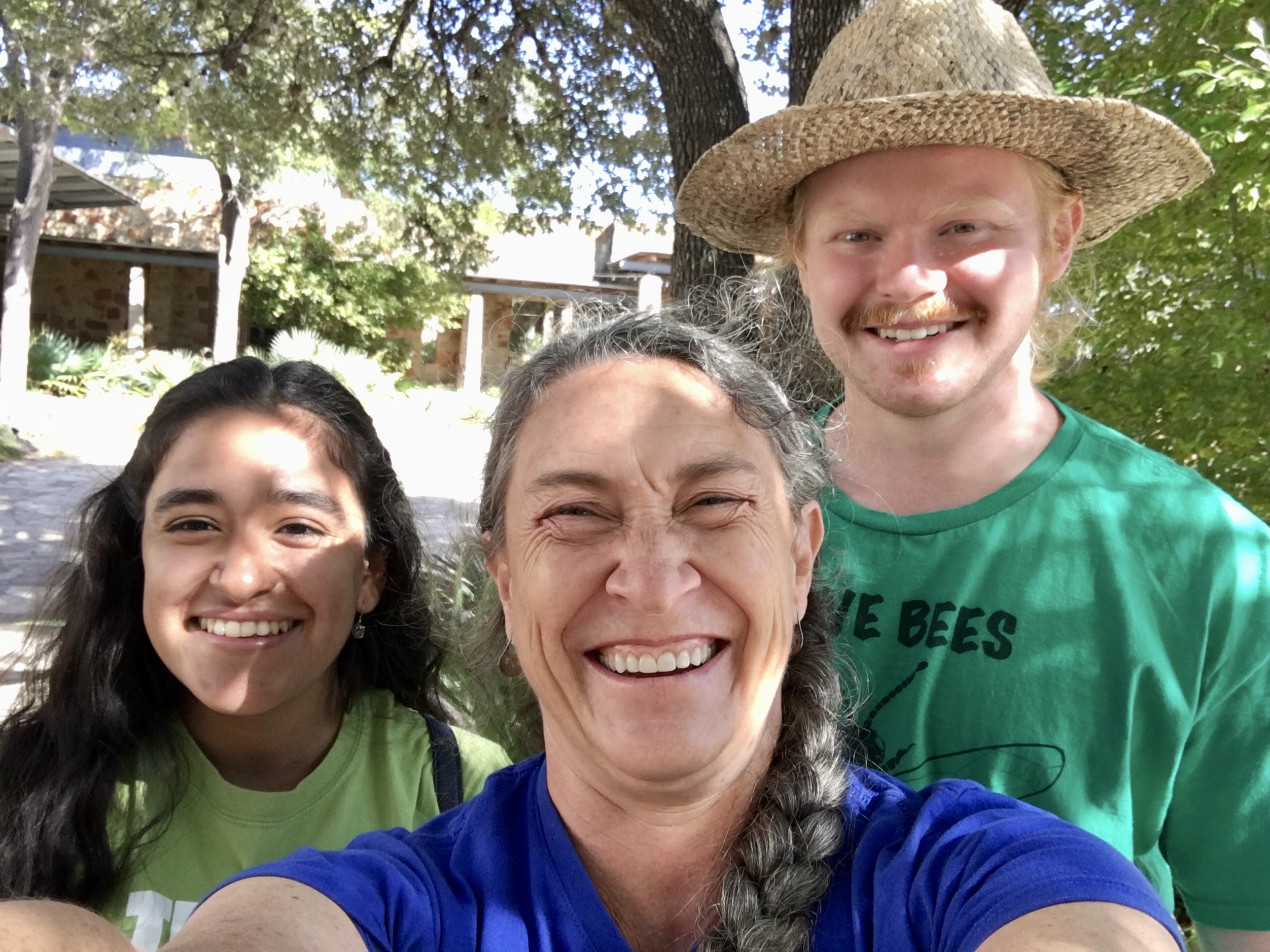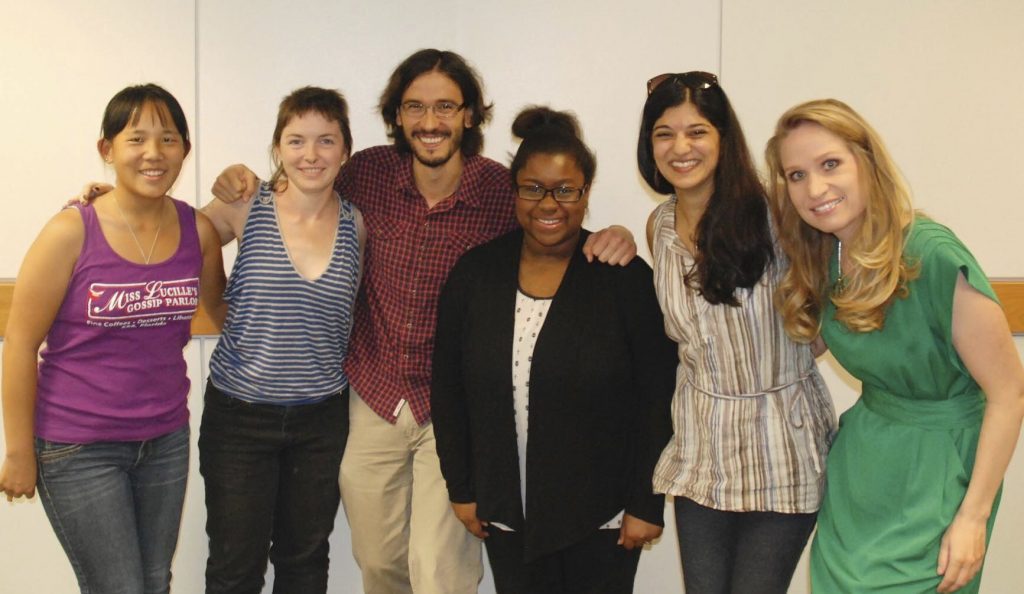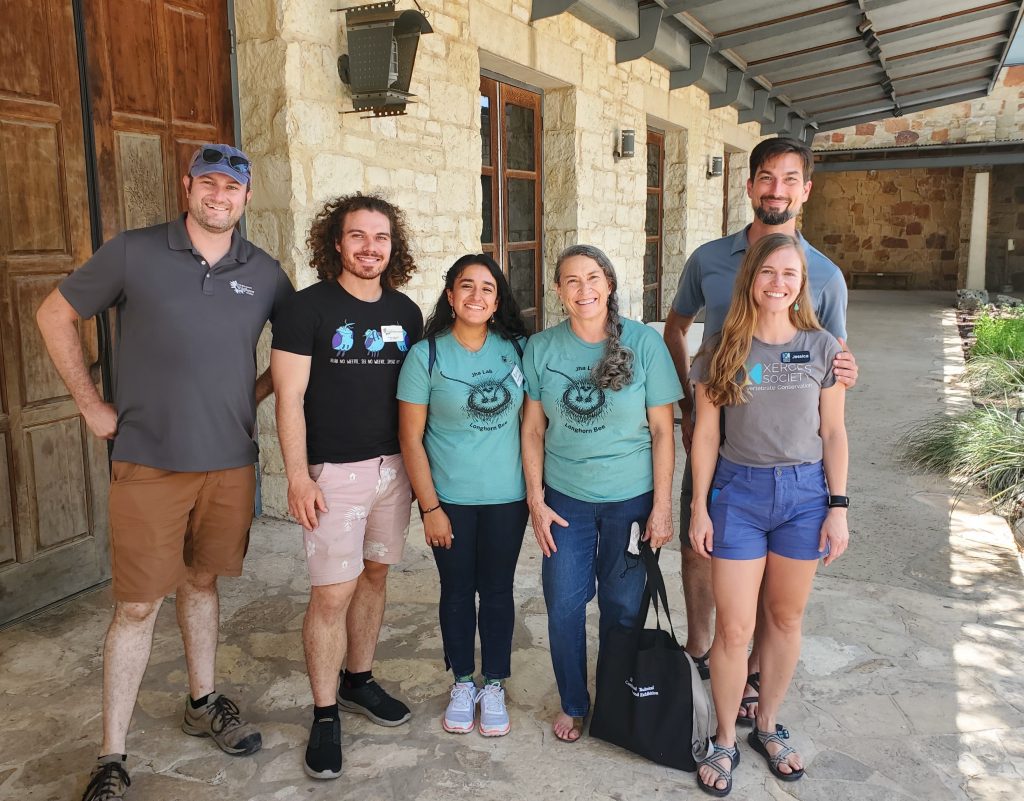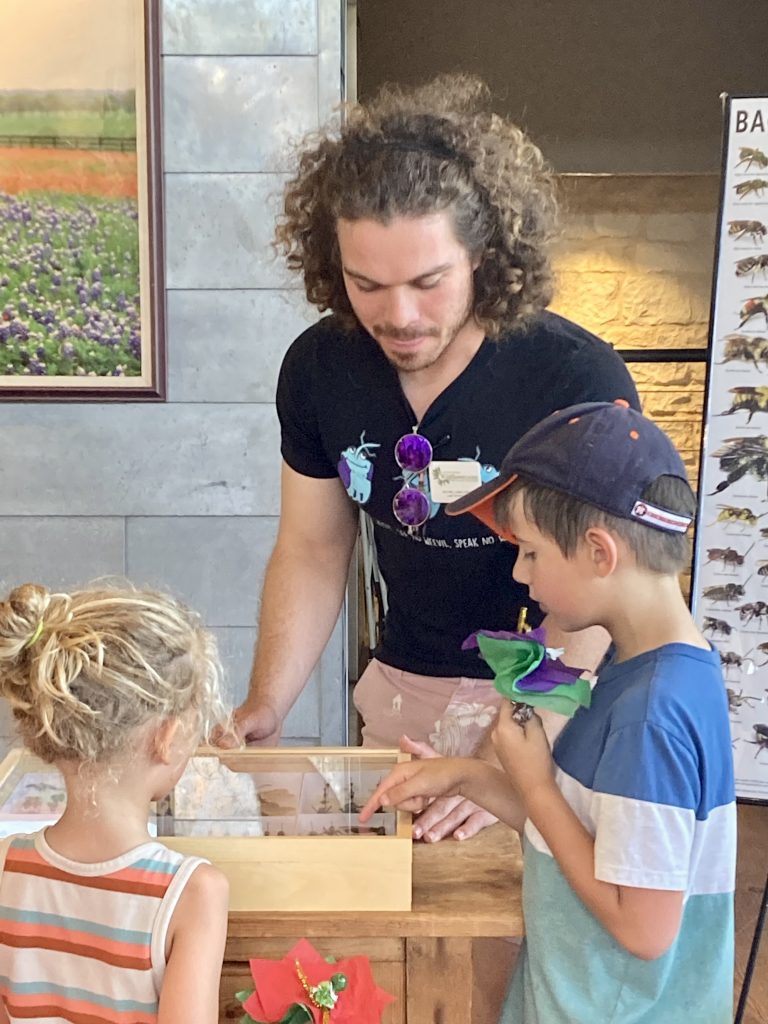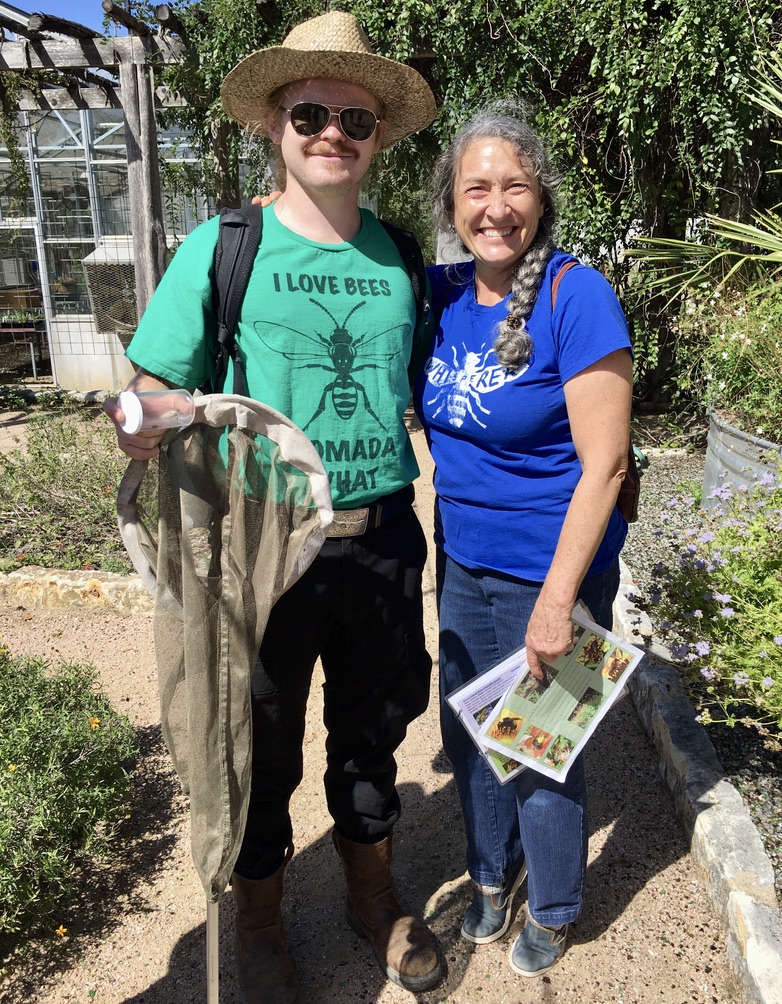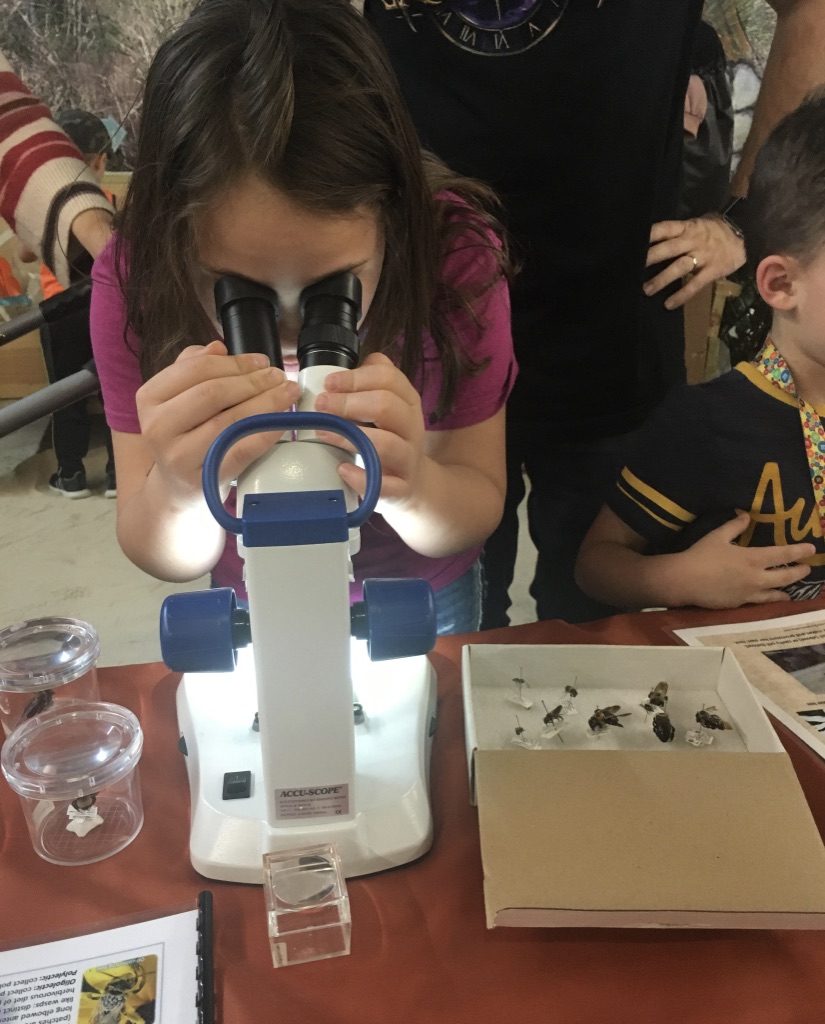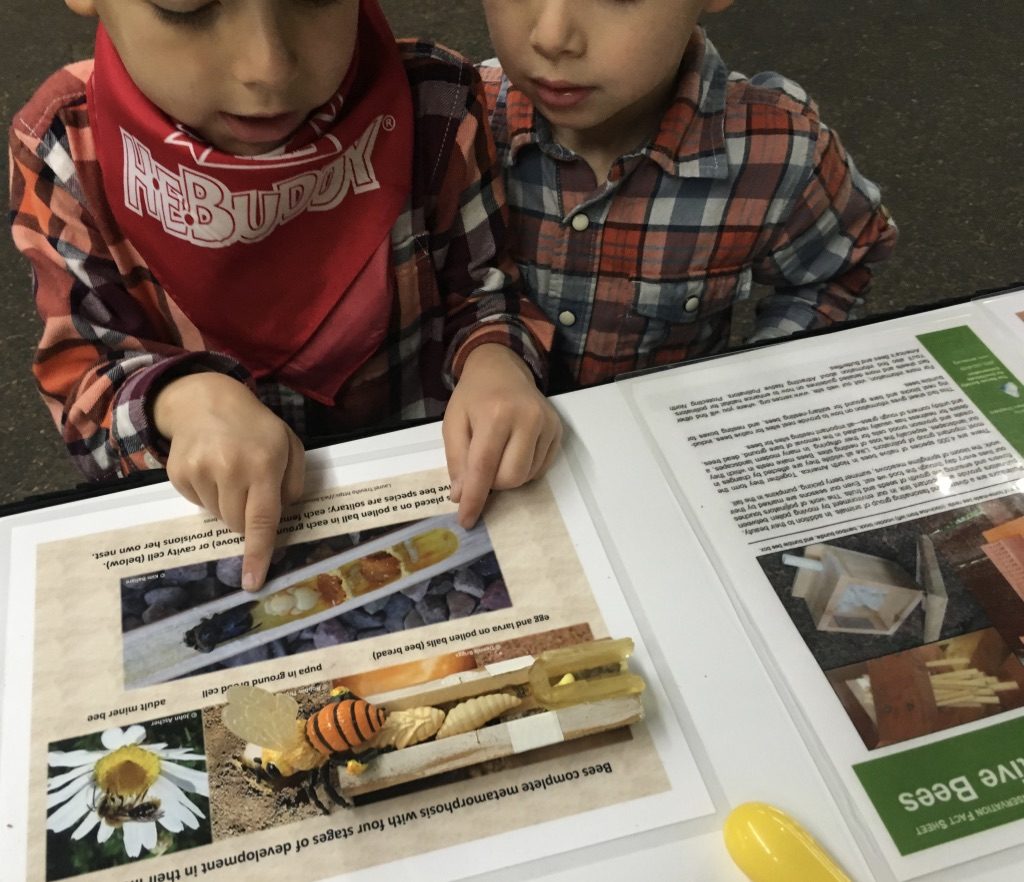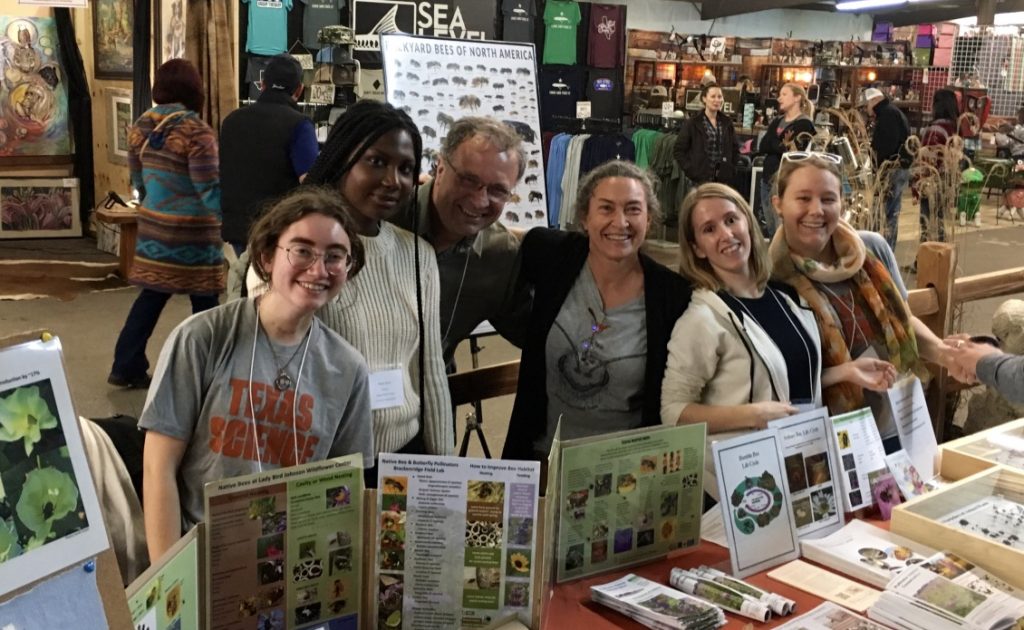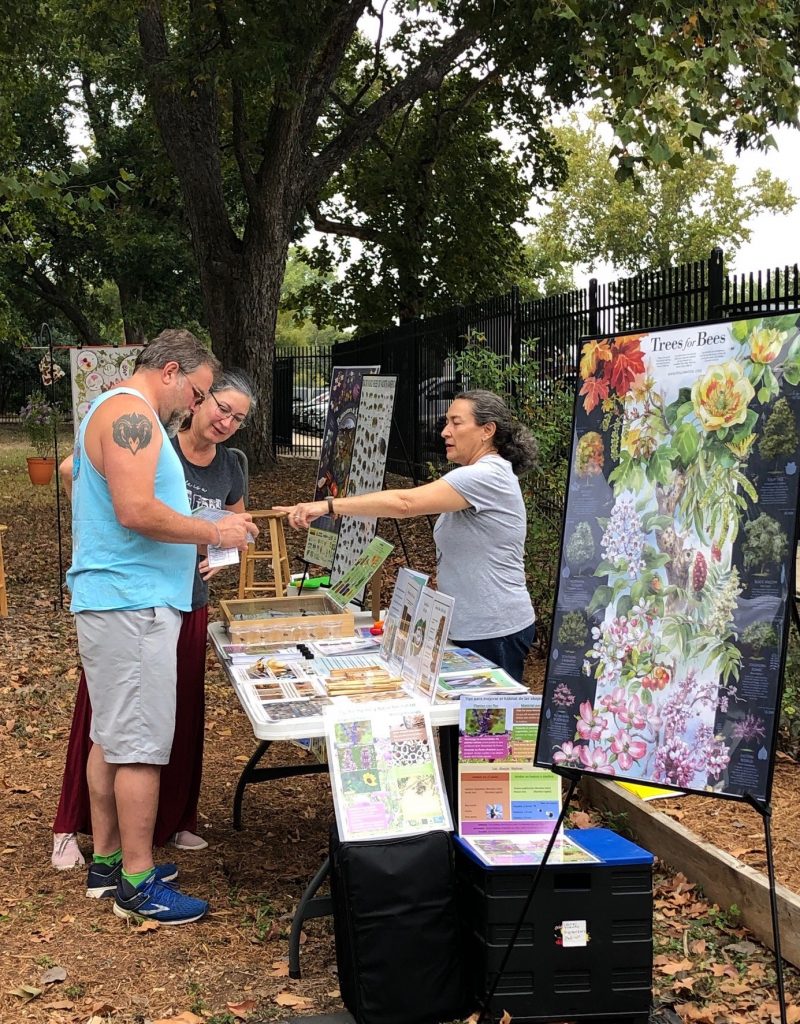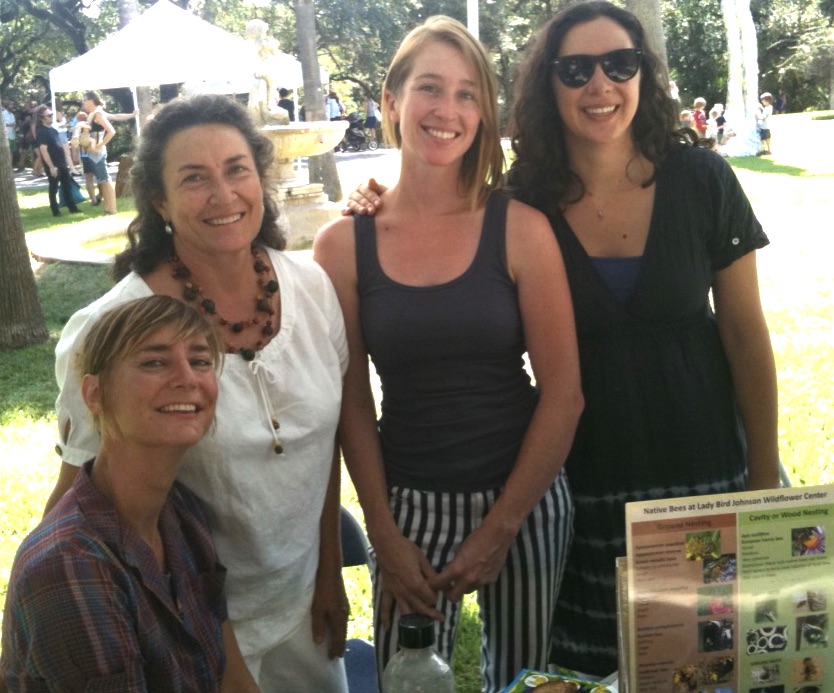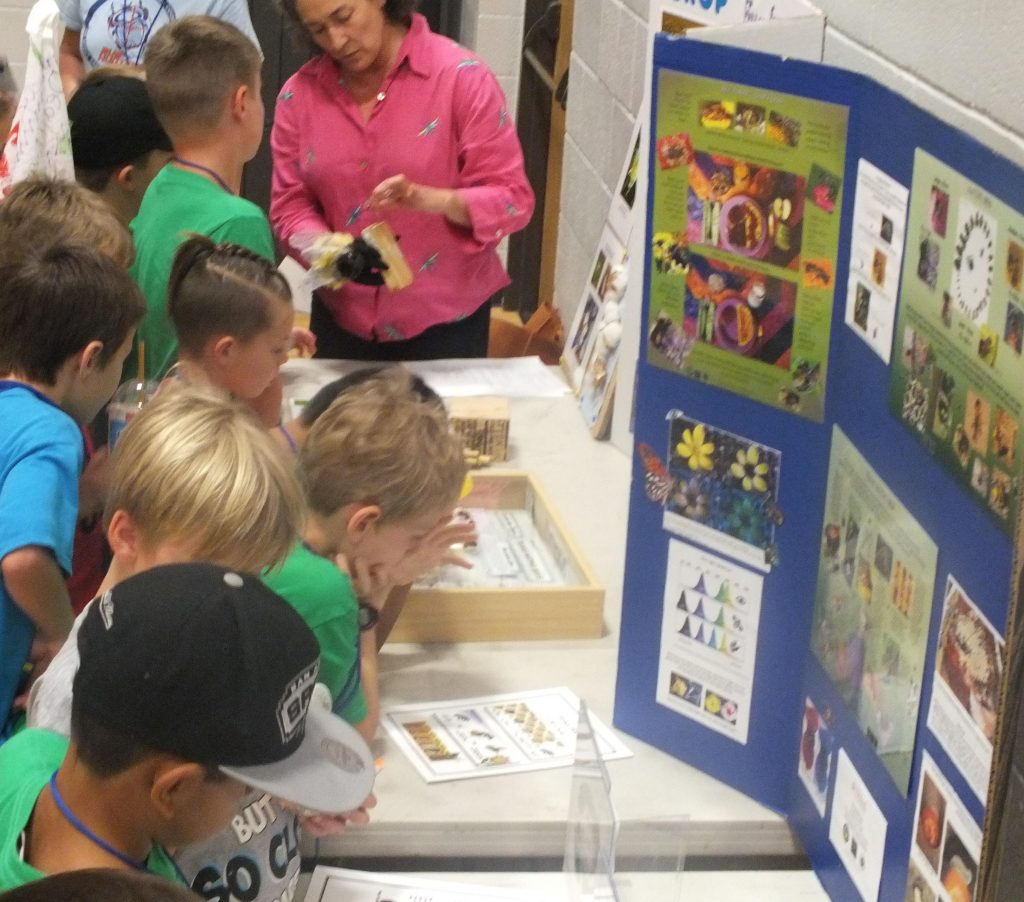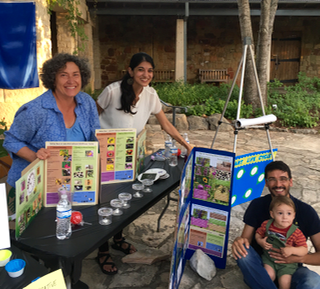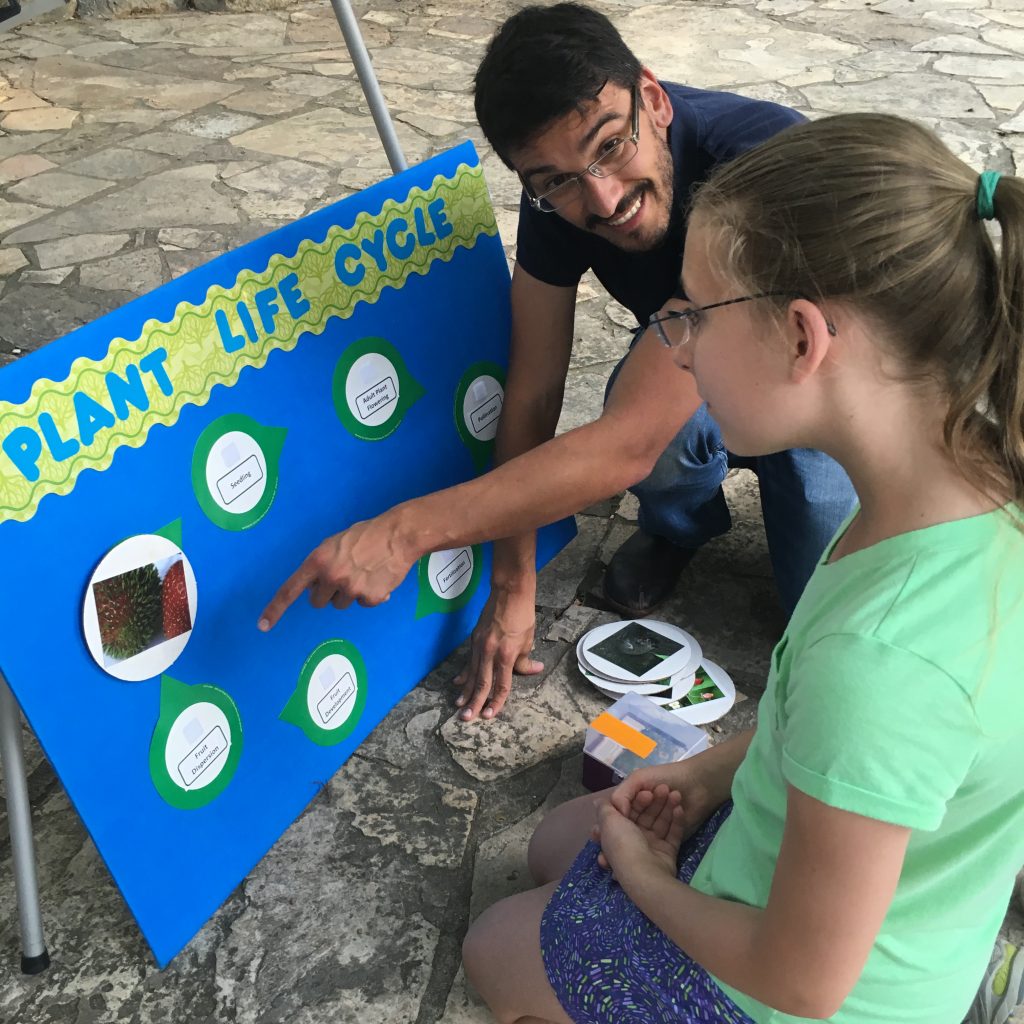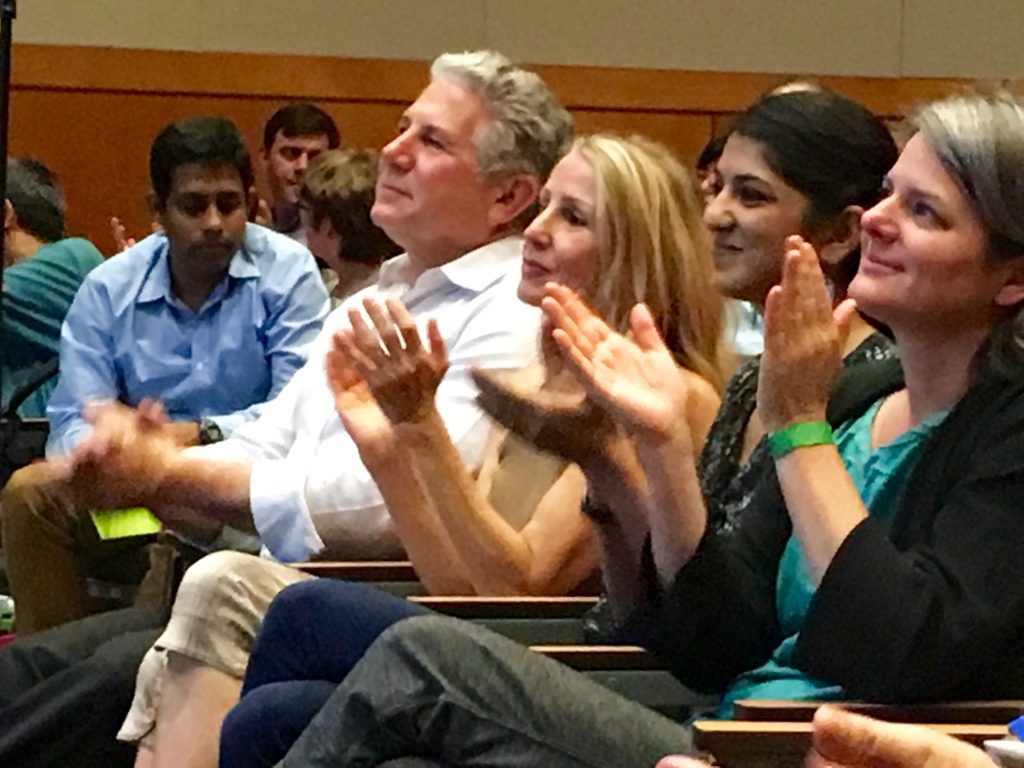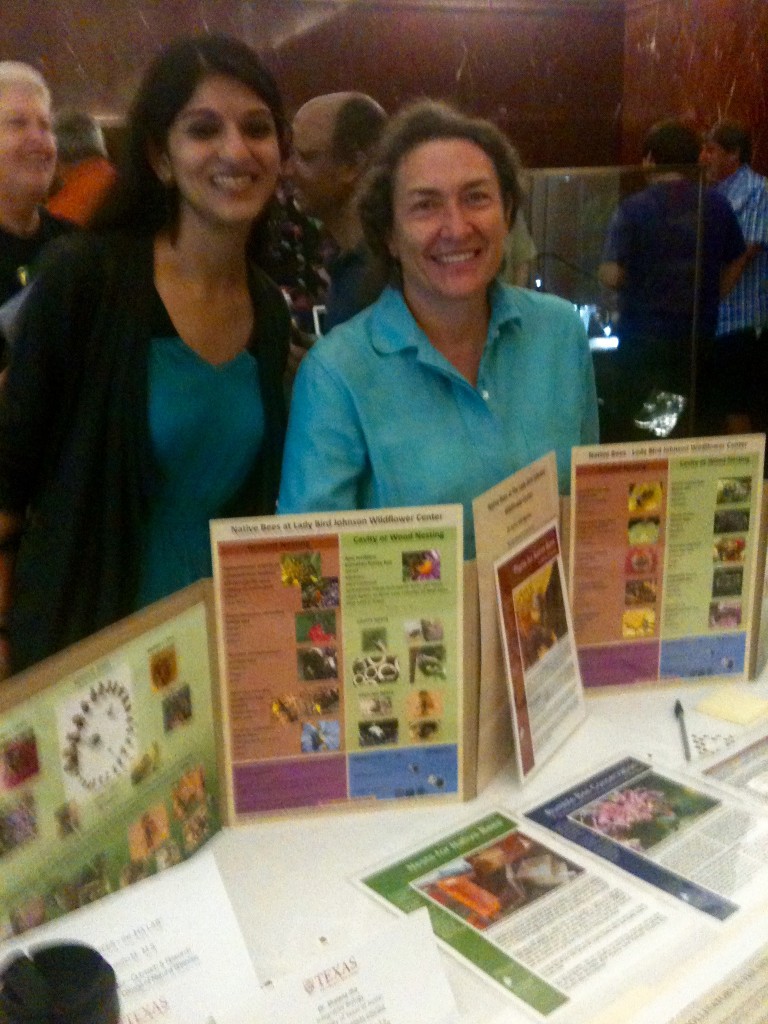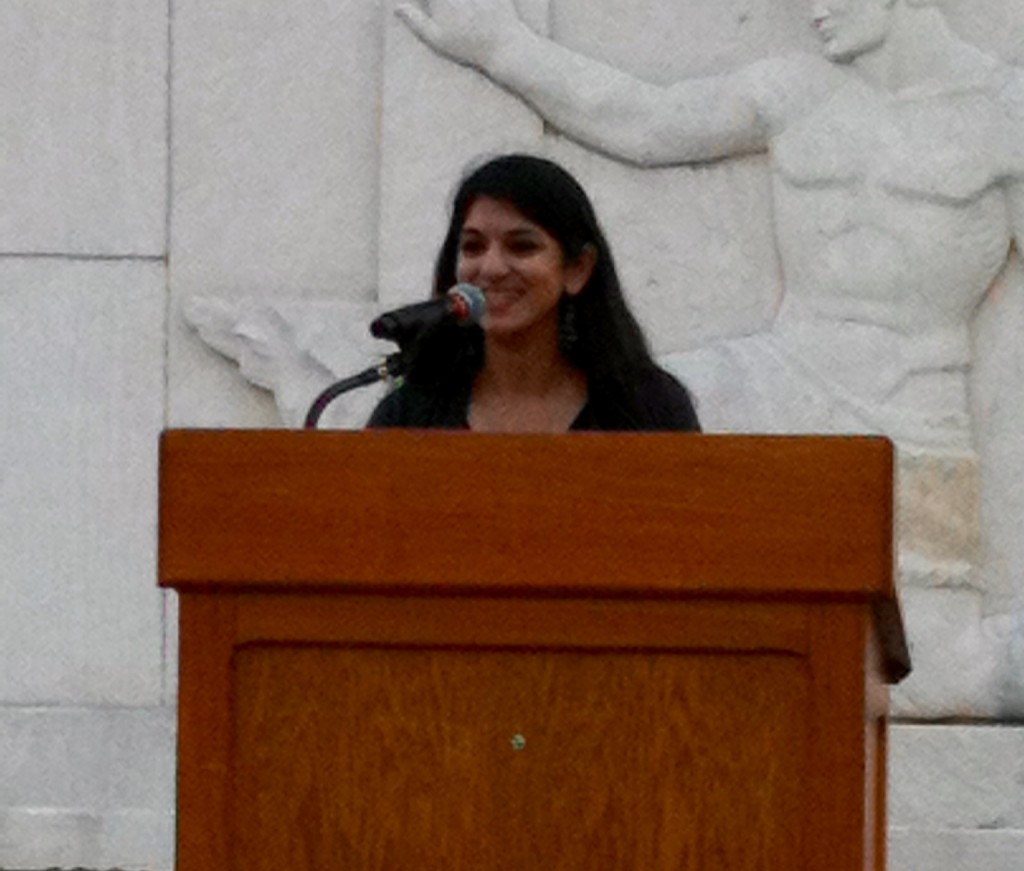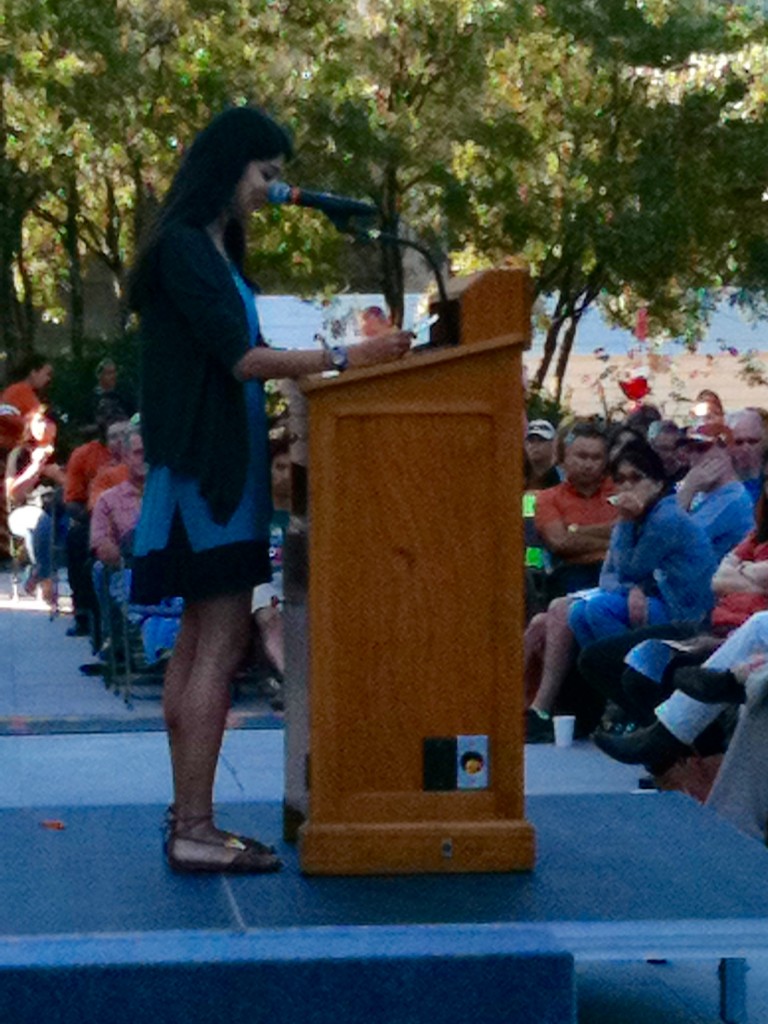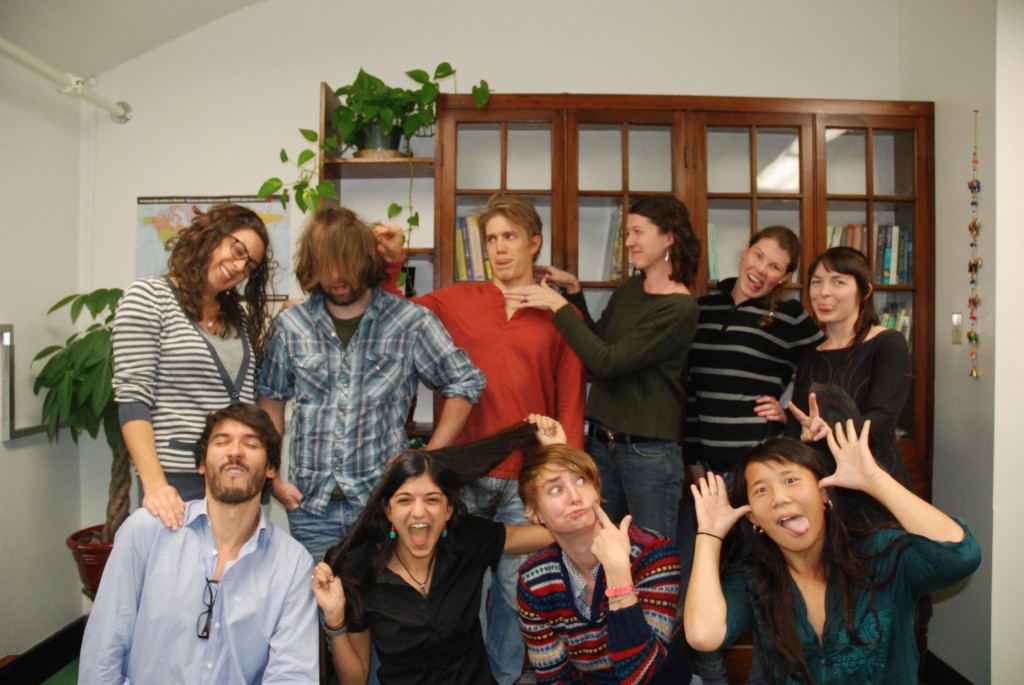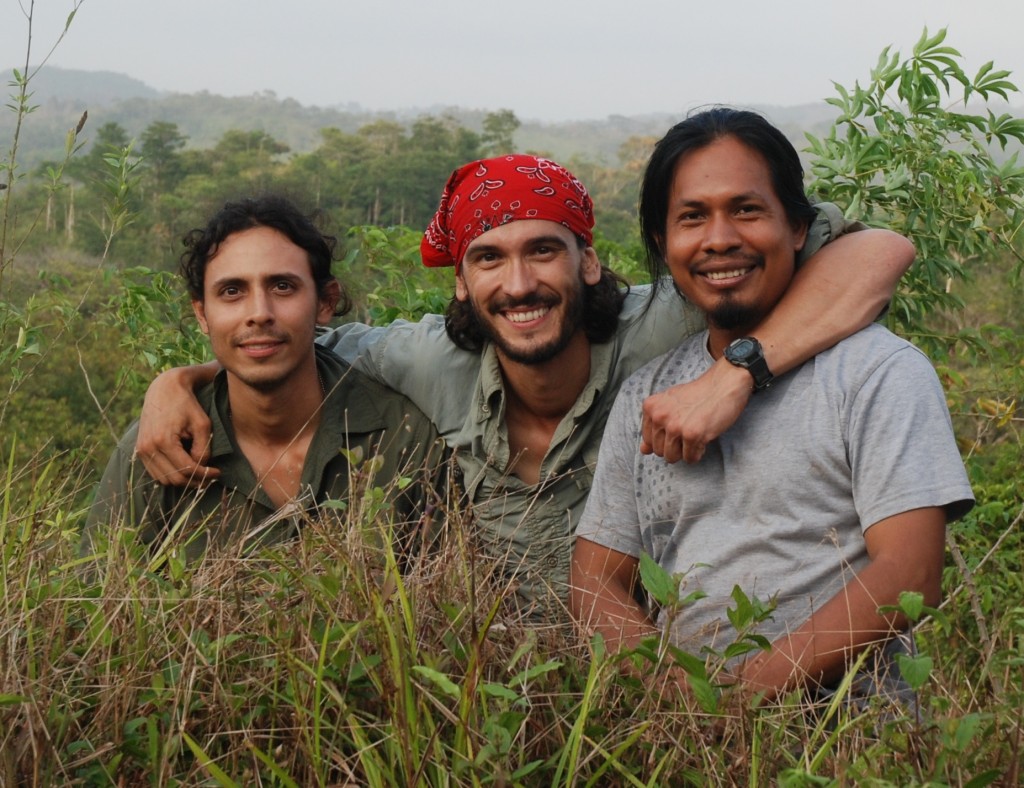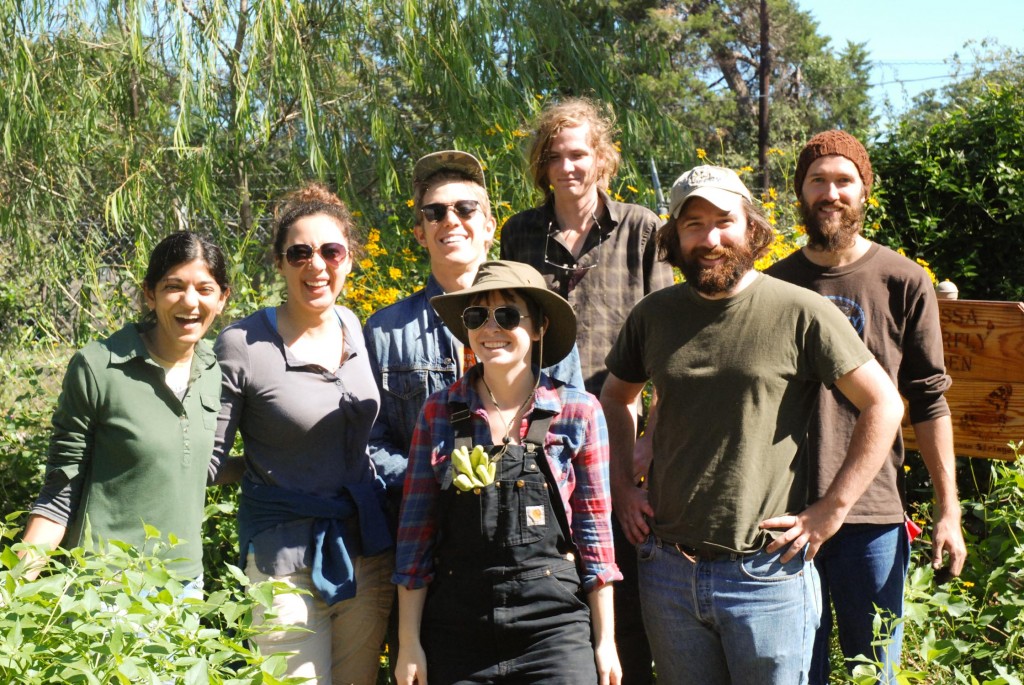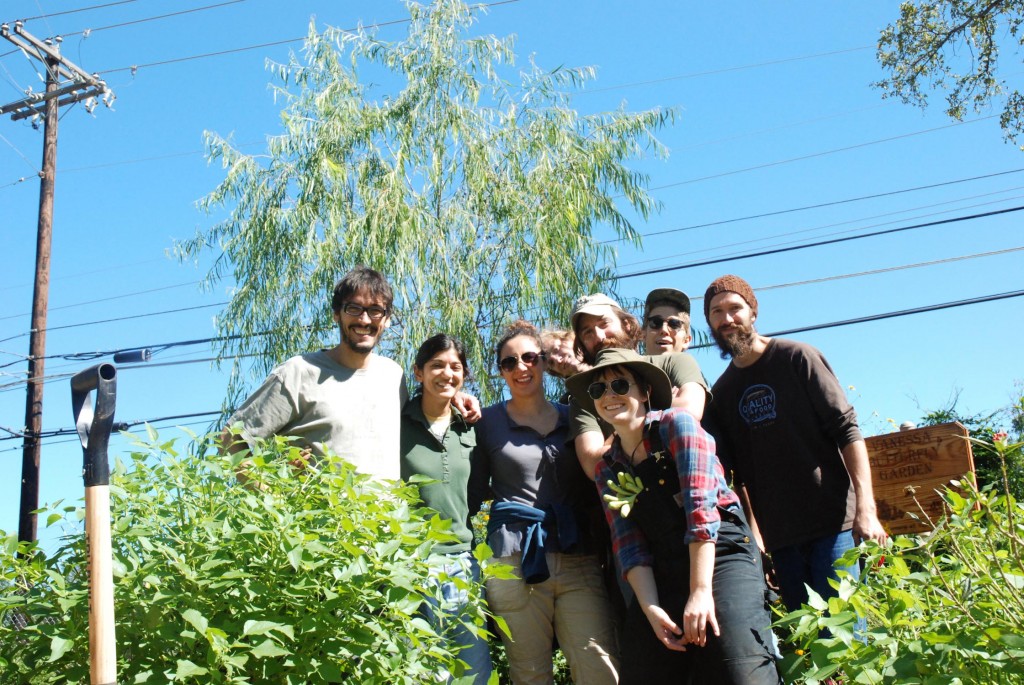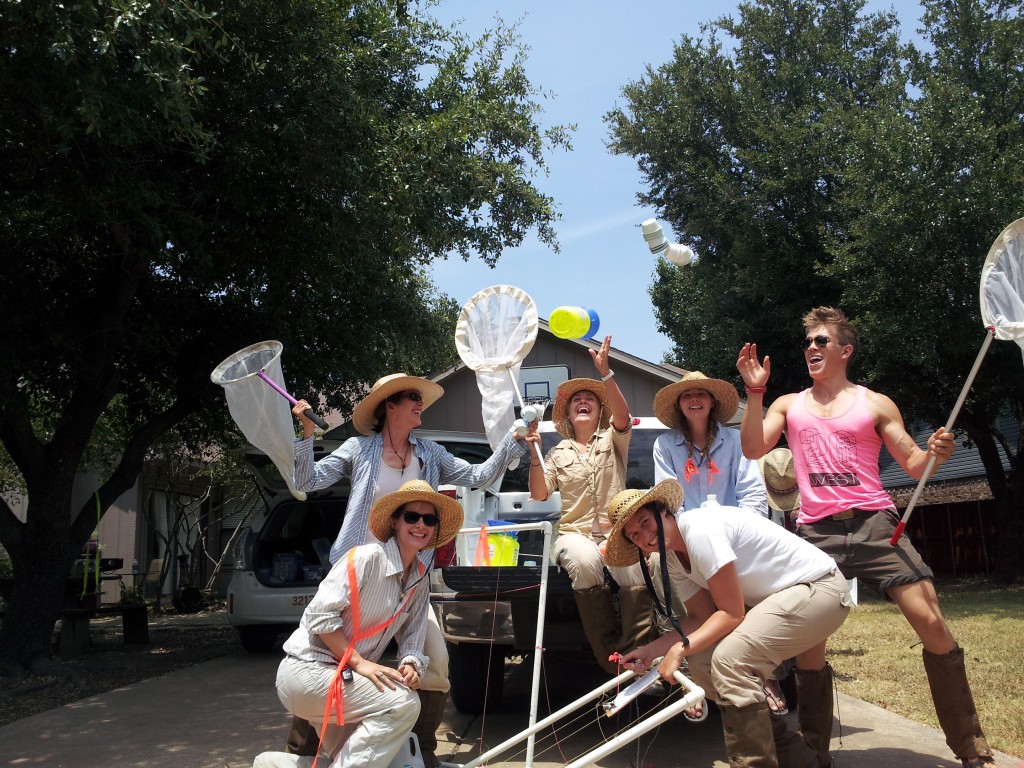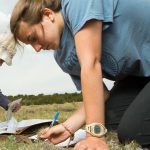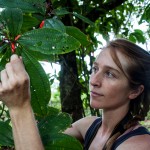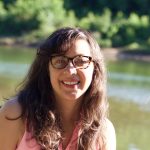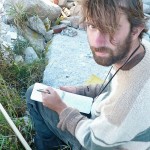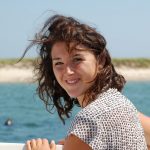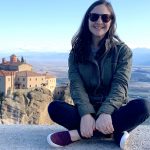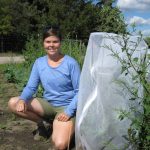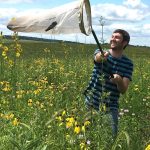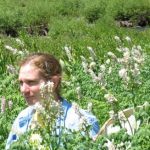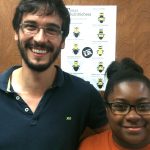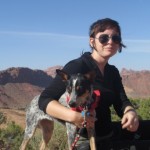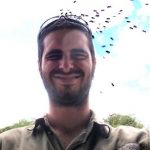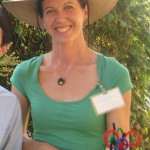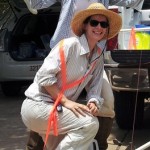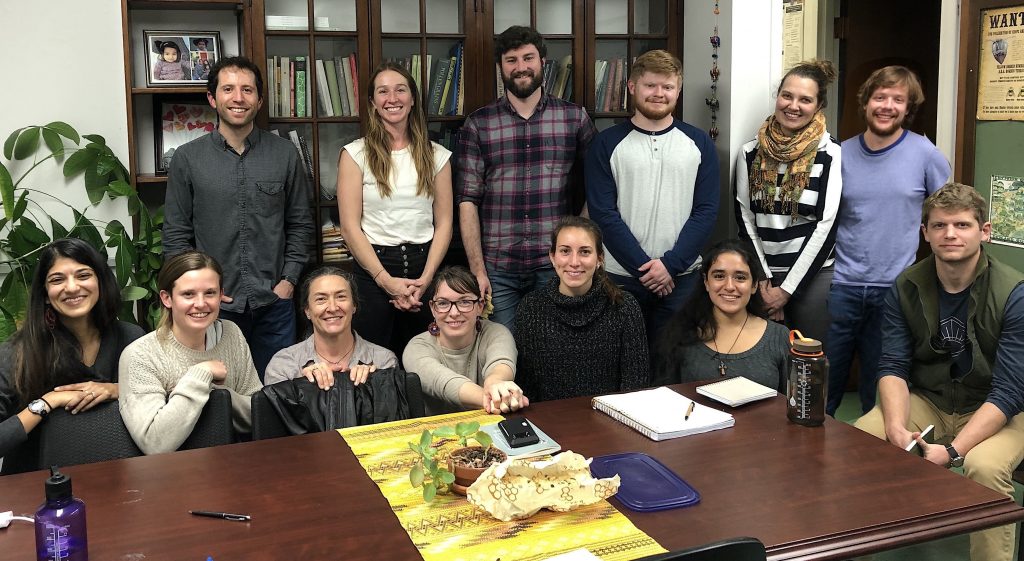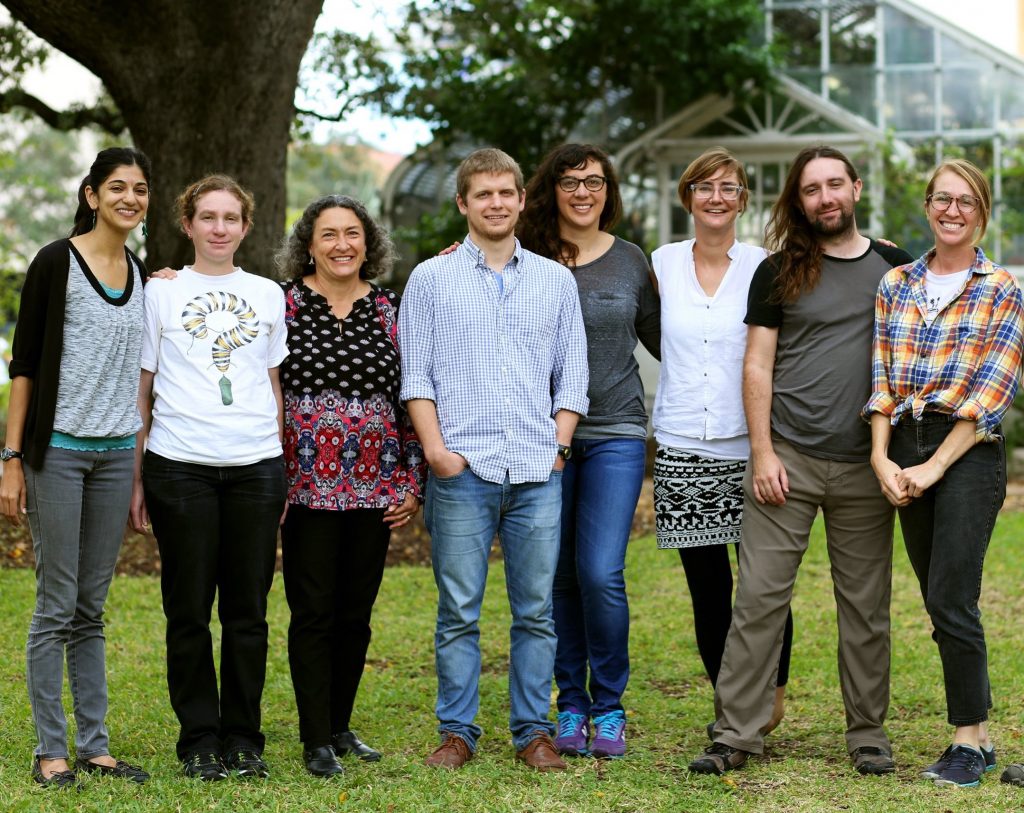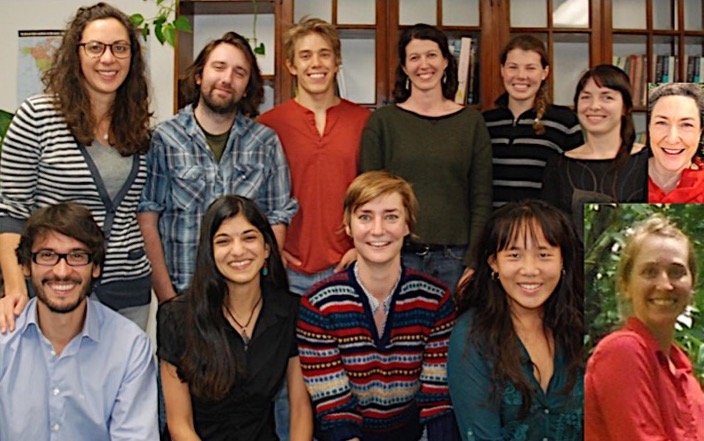Principle Investigator

Dr. Shalene Jha is a conservation biologist specialized in the fields of landscape genetics, population ecology, and foraging ecology. Her work examines how landscape composition influences gene flow processes, foraging patterns, and population viability for plants and animals. She has experience in population genetics, movement modeling, GIS, and ecosystem service science, and she conducts her research internationally, across temperate and tropical ecosystems. Shalene’s CV
Graduate Students

Livia Raulinaitis studies plant-insect interactions in the context of ecological restoration and climate change. She is interested in plant ecotype variation and its impact on pollinator network assembly. She is a Certified Ecological Restoration Practitioner in training (CERP-IT).

Lili Benitez studies plant and pollinator community composition and interactions in the context of global change. Her PhD work in Austin explores phenological shifts of native Texas wildflowers in response to surrounding plant species loss and insect exclusion. She also is interested in high elevation meadows and explores how vulnerable communities of plants and pollinators differ across these naturally fragmented landscapes. Additionally, Lili is the secretary of the UT Austin SACNAS chapter, and a scientist mentor for high school classrooms through Planting Science.

Leeah Richardson is interested in the effects of anthropogenic stressors (primarily pesticides) on native bees, as well as questions in comparative cognition – for example, how bumblebee queens’ cognition & brains change across their lifetime. You can learn more about her research at leeahrichardson.com and can contact her at leeahrichardson@utexas.edu

Caroline Chessher is fascinated by a wide variety of topics under the umbrella of mutualistic species interactions and their vital importance for ecosystem functioning globally. Her PhD work is broadly focused on how microbes mediate plant-pollinator interactions. She is currently studying how a widespread pathogen impacts bumblebee population health over time, and how medicinal floral diets might mediate these outcomes. Additionally, she is interested in broadening the lens of plant-insect interactions to the vast world of soil microbial communities belowground, so that we might elucidate their underrecognized impact on pollination function. In her projects, she tends to combine her backgrounds in field ecology and population/community genomics to answer these questions. Beyond her current research, she is passionate about agroecology, community gardens, and outreach. She is also the current tour guide for a graduate student-led outreach event, Science Under the Stars, held monthly at Brackenridge Field Laboratory. You can reach her at caroline.chessher@utexas.edu.

Smruti Pimplikar studies behavior and cognition in bees. She is interested specifically in inter- and intra-specific variation in the foraging behavior of bumblebees. She is also deeply passionate about science outreach and is currently serving as the co-President of the Science Under the Stars outreach program in Integrative Biology. You can reach her at smruti.pimplikar@utexas.edu or learn more about her research at smrutipimplikar.com.
Post-doctoral Researchers

Ariel Chasen is a National Science Foundation Postdoctoral Fellow in the Jha Lab, with training in both ecology and education. Her research sits at the intersections of ecological fieldwork, education, science identity, and disability studies. She investigates how to make scientific spaces—particularly fieldwork environments—more accessible and inclusive for learners and researchers in ecology. Drawing on both qualitative and quantitative methods, Ariel develops and tests instructional strategies and research tools that support scientists in creating field and classroom settings where all participants can meaningfully engage in scientific inquiry and knowledge production.

Chatura Vaidya is a Stengl-Wyer postdoctoral scholar studying the effects of global environmental change on plant-insect interactions and the ecosystem services they provide. She has studied this in a variety of contexts, such as the effect of agricultural intensification on pollinator growth and survival, effects of urbanisation on pollinator communities, effects of plant biodiversity loss and water availability on floral traits governing pollinator attraction, visitation, and their resultant effects on plant reproductive success. Her work has taken her from the urban community gardens in south eastern Michigan to the coffee farms in southern Mexico, and now to the sub-tropical grassland prairies of Central Texas. You can learn more about her research or get in touch with her directly on chatura.vaidya@austin.utexas.edu.

Kaysee Arrowsmith is an NSF postdoctoral fellow studying individual-level niche dynamics in bumble bees and spatial patterns in plant-pollinator interactions. She is also interested in phenological and environmental variation in the nutrition provided by plants and collected by insects. Her work primarily takes place in the Colorado Rocky Mountains where she also teaches in the undergraduate education program at the Rocky Mountain Biological Laboratory. You can learn more about her research at kcarrowsmith.github.io or contact her directly at kcarrows@utexas.edu.

Laura Jones is a postdoctoral fellow integrating principles from ecology, epidemiology, and insect physiology to evaluate the population status and health of wild, native bee species. In her PhD work, she investigated the impacts of pathogen pressure and climate on the thermal tolerance of solitary bees across their range, and described how host and pathogen ecologies influence transmission dynamics among bee pollinators in squash agroecosystems. In her postdoctoral work, she is assessing the risk of genetic isolation and inbreeding depression for high-elevation bumble bees in the Madrean sky islands, and investigating the roles of landscape resistance or distance in explaining patterns in their genetic structure. Her overarching goal is to inform management strategies that protect native bees from the impacts of rapid global change in both agroecosystems and natural ecosystems.
Undergraduate Researchers

Ana Rodriguez is an undergraduate Biology student and is a part of the Dean’s Scholars honors program at UT. She is currently conducting a literature review on how changing global patterns of shade vegetation and coffee distribution have affected biodiversity and ecosystem services. Her future goal is to attend graduate school to study infectious diseases and their impact on women’s health and well-being.

Anna Holme is an undergraduate Environmental Science student with an interest in native Texas plants and pollinators. Currently, she is researching the impacts of restoration practices, such as prescribed burning, on Lepidoptera communities. In the future, she hopes to pursue a career in conservation biology research.

Henry Tran is an undergraduate Environmental Science student with a Minor in Statistics and Data Science with an interest in how climate change alters pollinator behavior. He hopes to research the temporal and spatial distribution of pollinator behavior using GIS practices. After completing his undergraduate degree, he plans to pursue a career in ecological restoration and planning.

Max Roemer is an undergraduate Biology major on the Ecology, Evolution, and Behavior track with a focus on conservation biology. He is interested in how sustainability practices and ecological theory can be applied to preserve biodiversity in the face of climate change. Max hopes to pursue a PhD in research biology, where he plans to study how land-use change and habitat fragmentation affect the spatial distribution and long-term persistence of vulnerable species.
Lead Technician-Project Manager

Michael Caballero manages the Southern Plains Restoration Pollinator Project, which examines the effects of prescribed burns and native plant seeding on plant and pollinator communities in the Cross Timbers ecoregion. He’s an entomologist focused on insect and restoration ecology, insect-plant interactions, insect taxonomy, and systematics. He volunteers at the UT Insect Collection, does independent research, and curates his growing insect collection.
External Collaborator/Bee Guru

Dr. Jack Neff is a key collaborator and lifeline to understanding the bees of the southern U.S., provides us with invaluable insights on the natural history, ecological interactions, and evolutionary processes of native bees in Texas. Dr. John L. Neff founded and heads the Central Texas Melittological Institute in Austin.
Recent Adventures with the Team
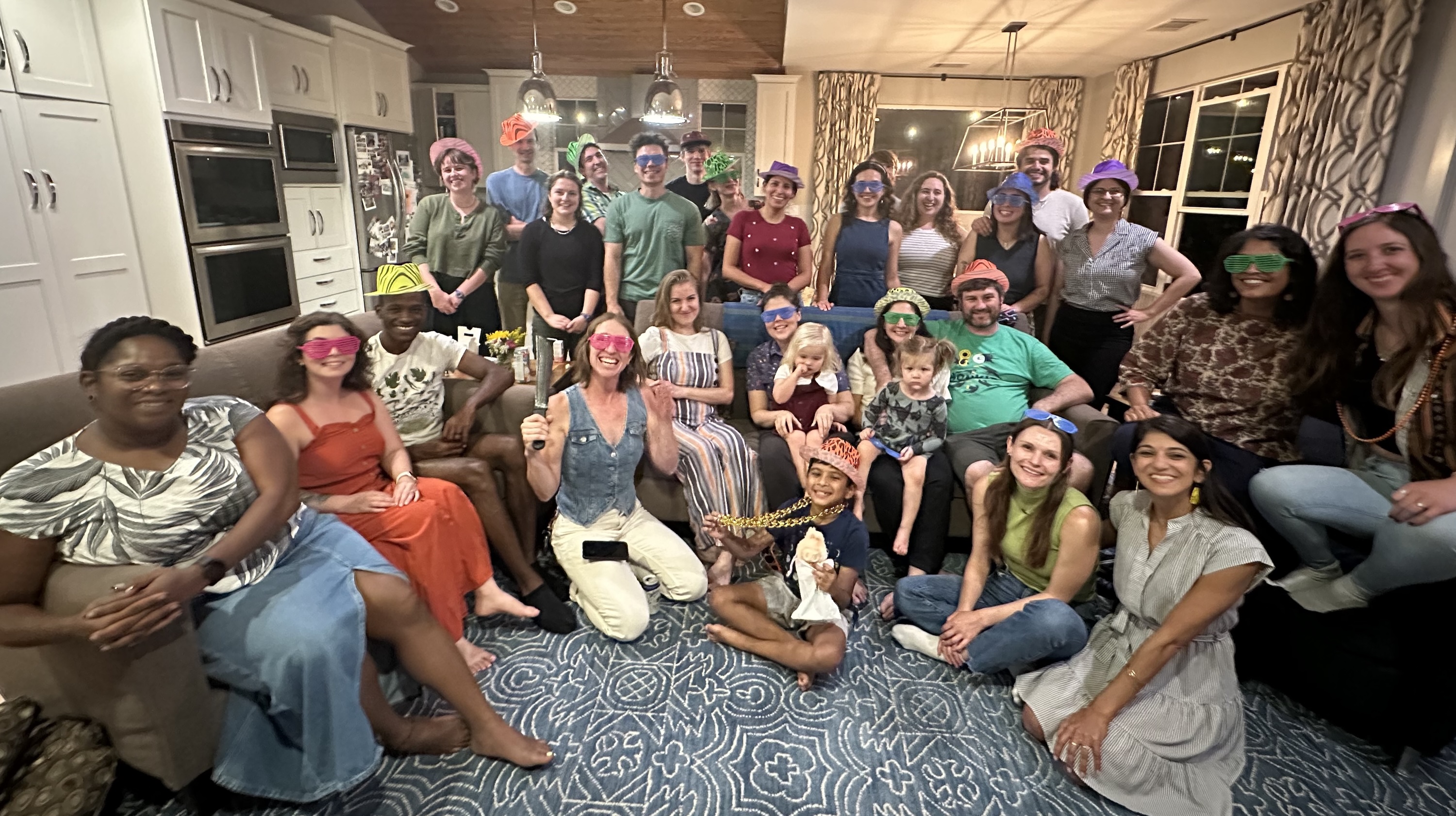






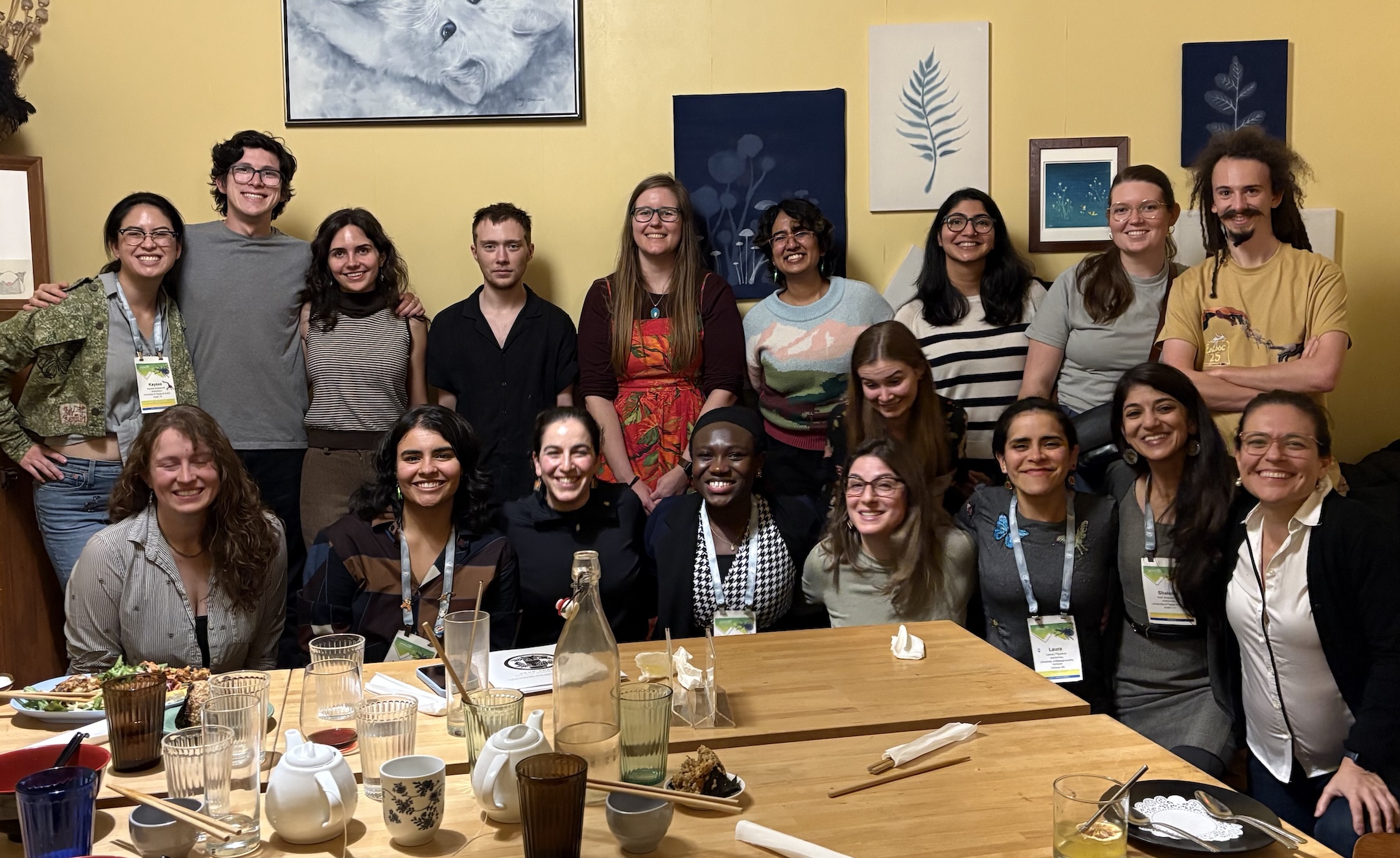
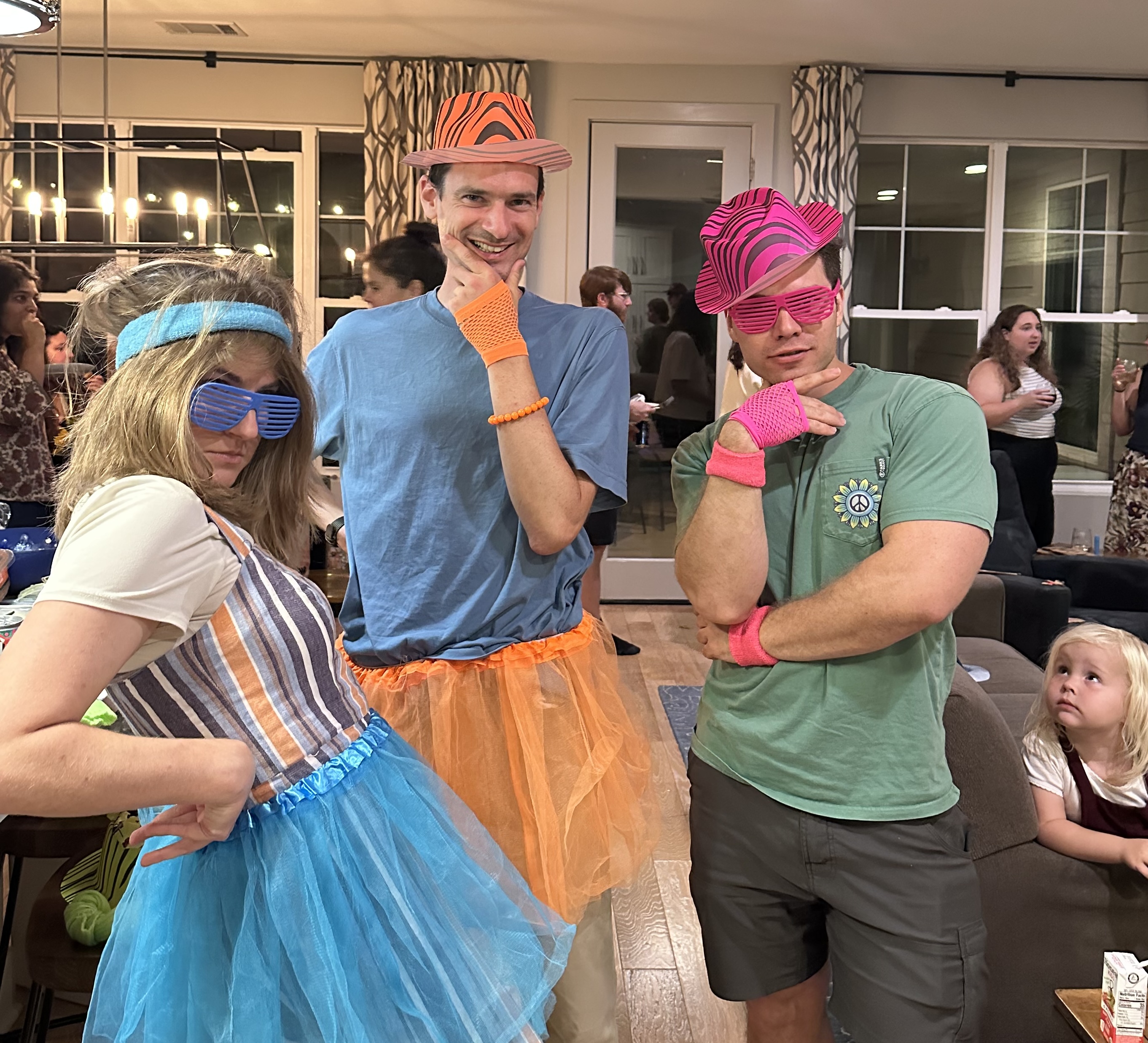
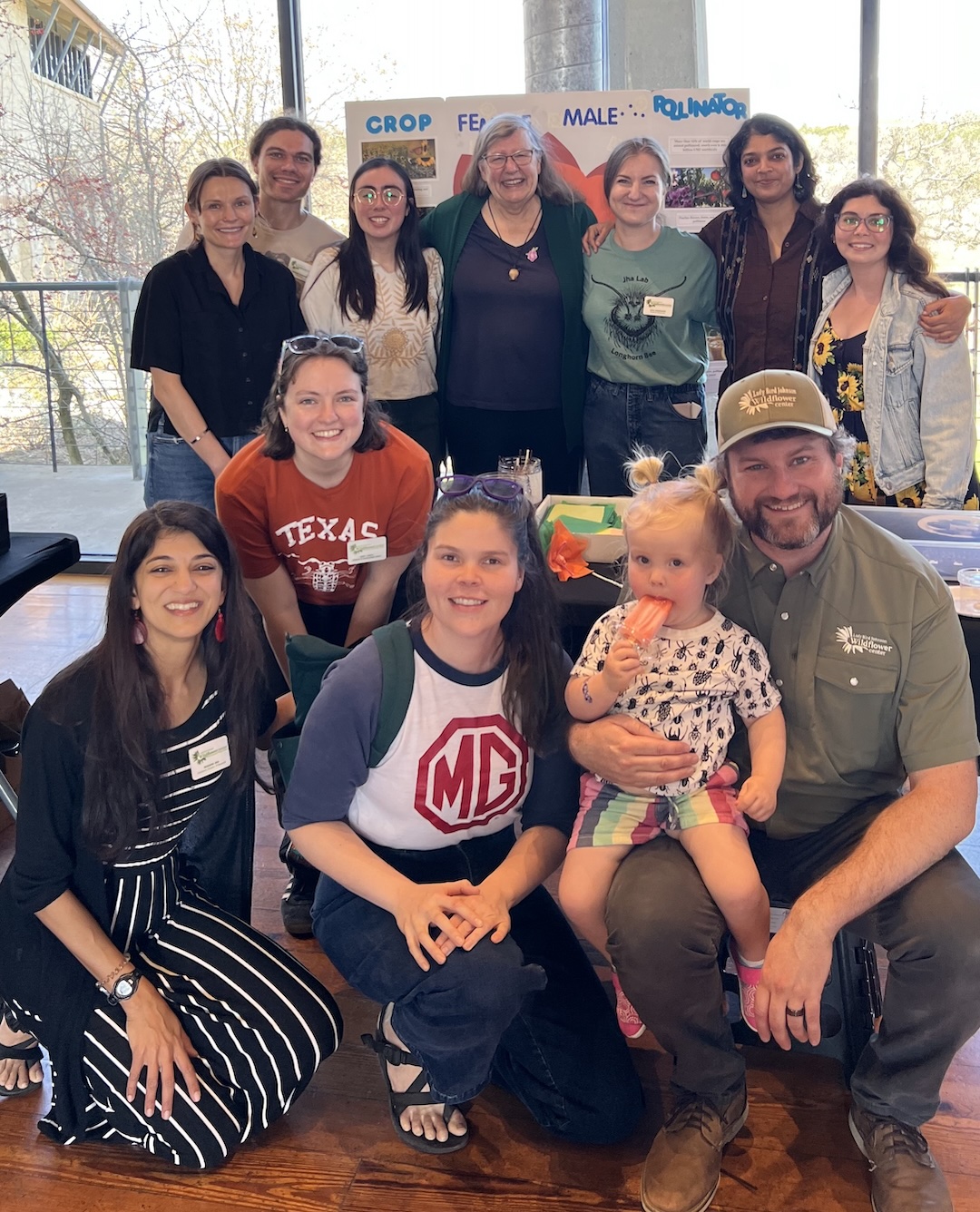
Former Lab Members
Former Graduate Students and Post-docs

Dr. Deidre Zoll is a Community & Regional Planner (UT Austin) who investigates the connections between city-led climate adaptation planning and environmental racism in the US. She uses plan evaluation, spatial statistics, surveys, and case studies to identify how structural racism influences the exposure to climate risks and the proximity to adaptation interventions, and how planners and community activists navigate these dynamics. See Deirdre’s website

Dr. Harry Siviter investigates the impact of anthropogenic stressors on bee health. He’s fascinated by animal behavior and cognition and passionate about conservation ecology. He earned his PhD at Royal Holloway, University of London, studying how agrochemicals affect bees. website

Dr. Nicholas Ivers bridges the fields of conservation genetics and disease ecology. He is studying squash bee populations among the crops he planted across the Agriculture Sciences experimental fields at Pennsylvania State University. He commutes between University Park and Austin to collaborate with Dr. Margarita López-Uribe (Entomology Department, Penn State) and Dr. Shalene Jha (Integrative Biology, UT Austin). He earned his Ph.D. at UT Austin. nui15@psu.edu
Camila Cortina, M.Sc., is interested in how land-use affects pollinator population dynamics through the lenses of population and landscape genetics. She uses the knowledge gained through research to help inform people in all walks of life how to make the environment a better place for all.
Dr. Megan O’Connell studies the effects of climate and land-use change on plant-pollinator dynamics and genetic diversity of plant populations in tropical forests. She does science communication and outreach and works on media projects focusing on scientific awareness at home and abroad. website
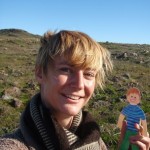
Dr. Sarah Cusser researches agricultural, industrial, urban habitat disturbance, affects plant-pollinator communities, and how restoration of disturbed habitats influence those interactions. After a Postdoctoral Research Associate at the Kellogg Biological Station, Michigan State, she joined the Santa Barbara Botanical Gardens in California. website
Dr. Kim Ballare has interests in ecology and evolution, including conservation genetics, landscape ecology, and urban ecology. Her research focuses on plant-pollinator interactions, how urban landscapes shape native bee communities and how they affect genetic population structure and local adaptation. She’s a Post-doctoral Scholar at The University of California at Santa Cruz. website
Dr. Nathaniel Pope researched the influence of parasites on the dispersal ability, foraging behavior, and reproductive success of bees. He’s interested in how the tools of population genetics and landscape ecology can be used to infer patterns of movement and behavior in agro-ecological systems. He’s fond of statistical modeling, bee phylogeny, and taxonomy. npope@coa.edu
Dr. Emlyn Jane Resetarits is interested in how species interactions affect communities and ecosystems. She works on understanding how interspecific interactions (among protists & parasites, daphnia & snails) alter sociality and how scale influences species interactions and ecosystem functions.
Dr. Gabriella Pardee works on a federally-funded Multidisciplinary University Research Initiative that leverages pollen DNA meta-barcoding to quantify plant-pollinator interactions, pollinator foraging breadth, and pollen-pollinator origin in global land use change. Gabby is now the Research Director at the Wild Basin Creative Research Center with St. Edward’s University. website
Dr. Hannah Gray researches how insect-plant interactions & biogeography influence ecosystem services & disservices in agriculture. She examines relationships between insect herbivores and pollinators in a shared host using molecular techniques to build field-verified food webs. Hannah now serves as the State Invertebrate Biologist for the Texas Parks & Wildlife Department.
Dr. Sean Griffin is interested in ecological restoration, fire ecology, insect movement, and pollinator conservation across fragmented landscapes. In the Jha lab, he examined how prescribed burns and other practices affect plant-pollinator communities in prairie ecosystems. He currently is the Director of Science & Conservation at the Lady Bird Johnson Wildflower Center. website
Dr. Elinor Lichtenberg Is an Assistant Professor at the University of North Texas, where she employs field, lab and quantitative approaches to her research. She is interested in pollinator conservation and how animal interactions alter plant-animal interactions. Her research in the Jha lab focused on pollinator community ecology under experimental prairie habitat restoration. website
Dr. Antonio Castilla is an Assistant Professor in the Department of Plant Biology, Ecology and Evolution at Oklahoma State University. His work focuses on ecology and evolution of plant-animal interactions, landscape genetics, plant mating systems & spatial ecology. As a postdoc, he studied bee pollinators of Miconia spp. tropical trees in Panama, and native plant pollinators in Central Texas. website
Dr. Hollis Woodard is an Assistant Professor in the Department of Entomology at the University of California – Riverside. As a NIFA postdoc, she studied nutritional ecology and conservation of native bees, focusing on the effects of nutrient limitation on behavior & development in bumble bee life cycles. She is an assistant professor in the Entomology Department at The University of California at Riverside. website
Former Lab Members & Collaborators
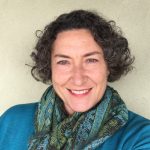
Laurel Treviño Murphy is a biologist, botanist, and wildland resource scientist whose public engagement work focuses on native plant and bee conservation. In addition to developing much of the Jha Lab outreach materials, she co-developed the Native Bees of Texas course, and helped establish the UT Bee Campus and collaborates with Austin Bee City (Xerces).
Dr. Rodolfo Jaffe Ribbi investigates the relationship between land use and bee population dynamics; population genomics of bees; the interphase between pre-copulatory and post-copulatory sexual selection in social insects; and beekeeping as a sustainable development tool. He’s a research scientist at the University of Sao Paolo and Vale Institute of Technology. website
Rebecca Ruppel got her M.S. at Syracuse University studying patterns of inheritance in polyploid plants and worked with Judie Bronstein at the University of Arizona.
Clare Glinka got our field & lab projects going! Her M.S. in Plant Biology from the University of Texas, Austin, focused on plant-microbe interactions. Both Becky and Clare currently work in computational sciences in Austin, Texas.
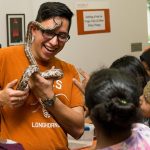
Alejandro Santillana studies the impact of climate change and land conversion on plant-pollinator networks. He surveys, identifies and curates pollinator insects at University of Oregon Ponisio Lab and does outreach for UT’s Insects Unlocked. website
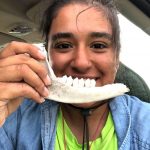
Elizabeth Lopez graduated from UT with a biology major. As a research technician, she worked identifying and curating specimens that she collected for the prairie restoration project, and studied pollinator networks for an independent project.
Benjamin Durrington is experienced in restoration, microscopy and meta-barcoding. He’s interested in plant ecology and evolution, especially plant mutualisms. He worked with pollen samples to understand plant communities around Austin and vegetation monitoring.
2020 (top left-right) Dr. Tobin Hammer, Megan O’Connell, Dr. Sean Griffin, Sam Wilhelm, Dr. Caroline Strang, Dr. Harry Siviter; (bottom left-right) Dr. Shalene Jha, Dr. Felicity Muth, Laurel Treviño, Dr. Hollis Woodard, Camila Cortina, Elizabeth Lopez, Nick Ivers. Laurel Treviño formatted photos & summarized bios.
2017 (left-right) Dr. Shalene Jha, Dr. Elinor Lichtenberg, Laurel Treviño, Nick Ivers, Kim Ballare, Sarah Cusser, Nate Pope, Megan O’Connell (also photographer)
2014 Kim Ballare, Nate Pope, Alan Ritchie, Rebecca Ruppel, Sarah Cunningham, Dr. Hollis Woodard, Laurel Treviño, Dr. Antonio Castilla, Dr. Shalene Jha, Sarah Cusser, Esther Schenau, Megan O’Connell
Former Undergraduate Students’ Research and Work
- Sam Wilhelm: worked in geography, pollinator prairie restoration project
- Sydney Rivera: was conservation UT Rio Grande Valley-ESI Summer Researcher
- Sarah Cunningham: did plant & butterfly collection & identification
- Karima Khimani: studied environmental effects on gene flow
- Esther Schenau: worked on bee genetics
- Emily Wagner: worked on genetics of communication
- Mustafa Saifuddin: did a thesis on bee foraging
- Ashley Doucet: was the field crew’s expert bee catcher
- Shannon Dang: curated insects for the prairie restoration project
- Alan Ritchie: began the pollen ID project, studied agriculture pollinator communities
- Apoorva Magadi: augmented the pollen image library in the pollen ID project
- Fabiola Rodriguez: advanced the Miconia spp. tropical pollination project
- Kelvey Merill and Brittany French were part of the first field crew



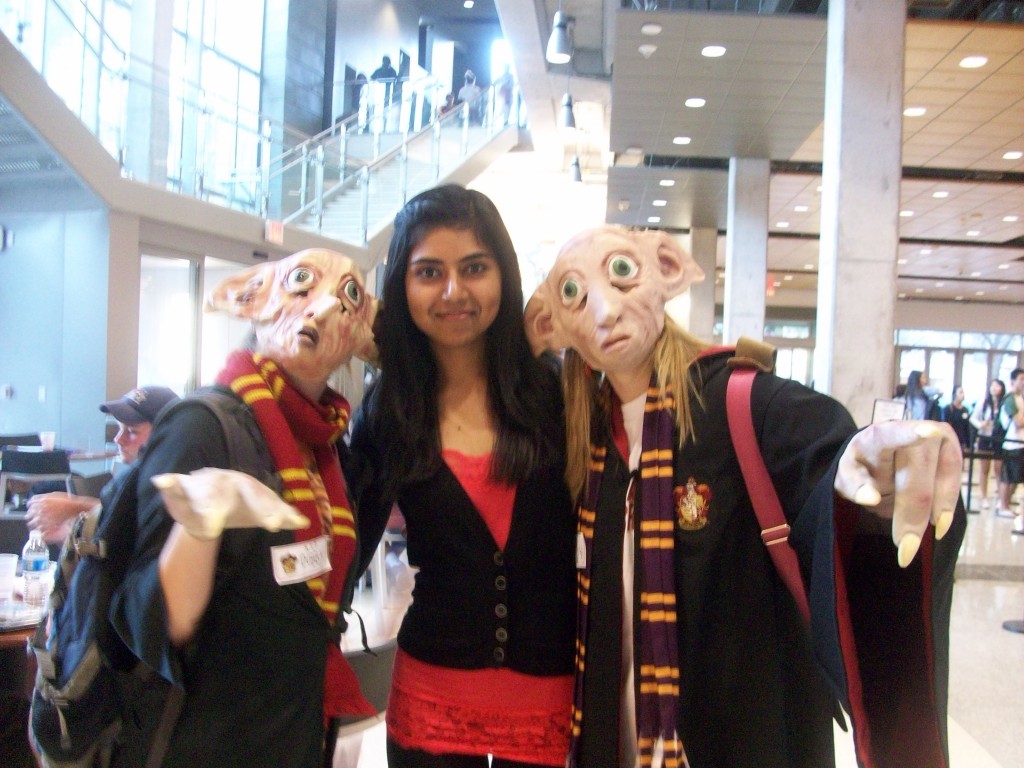
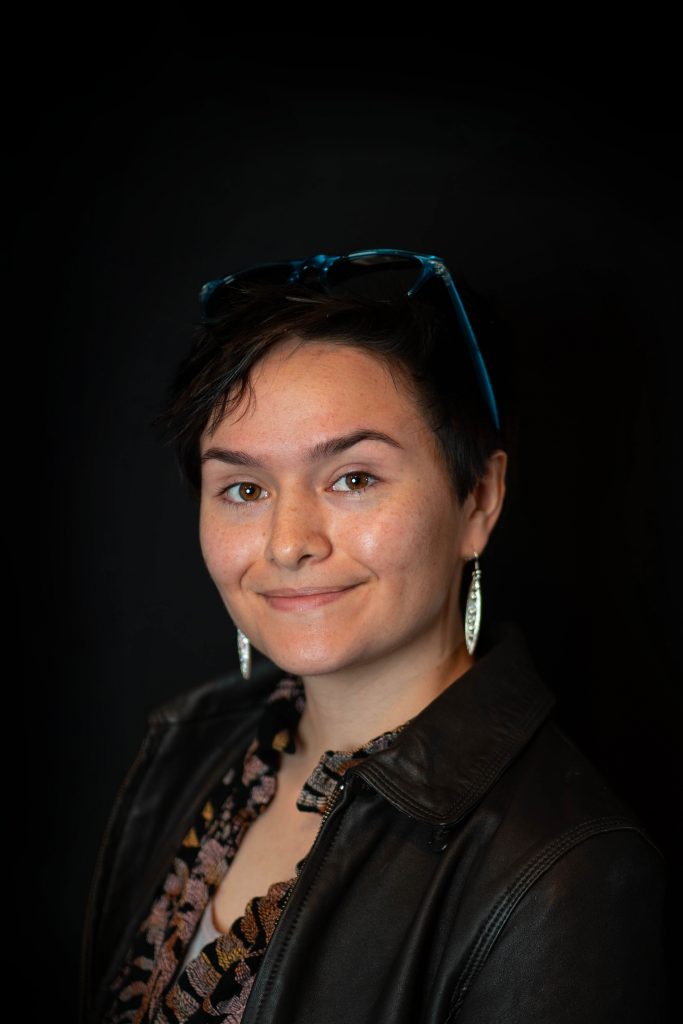
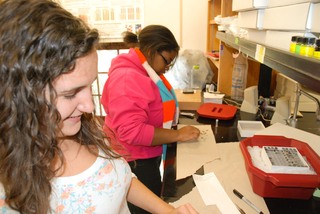

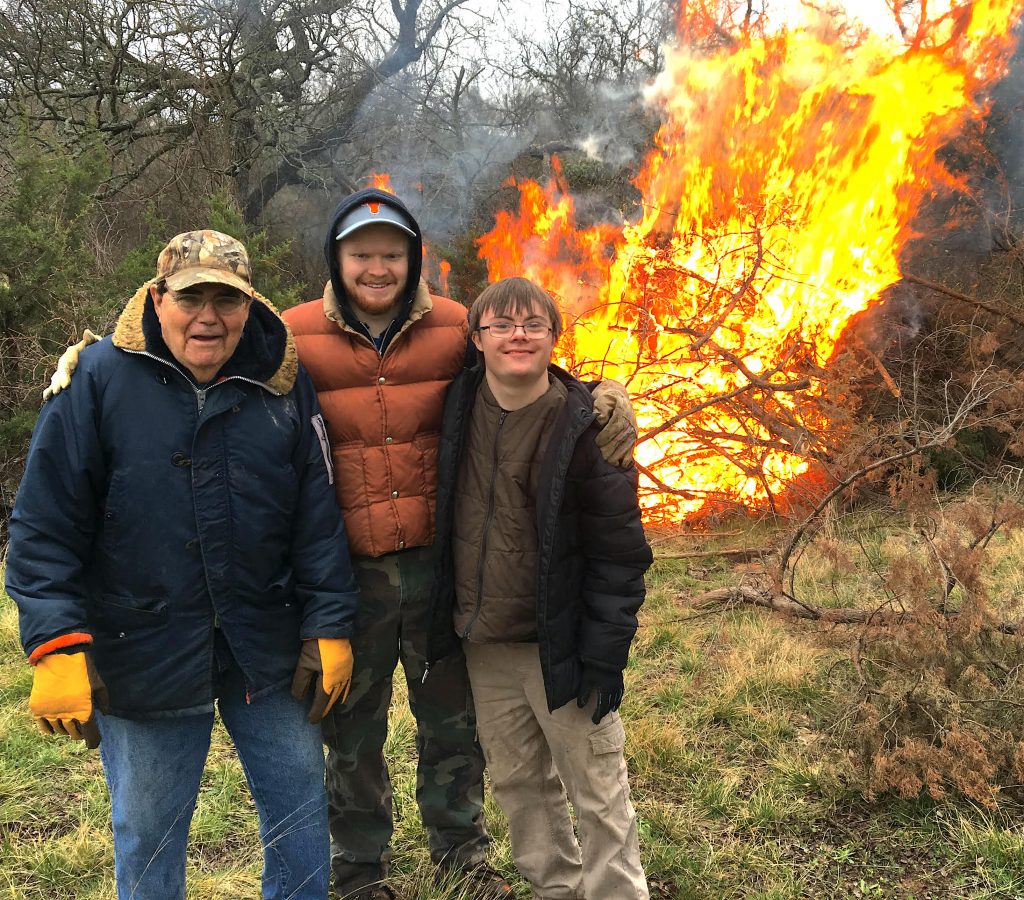

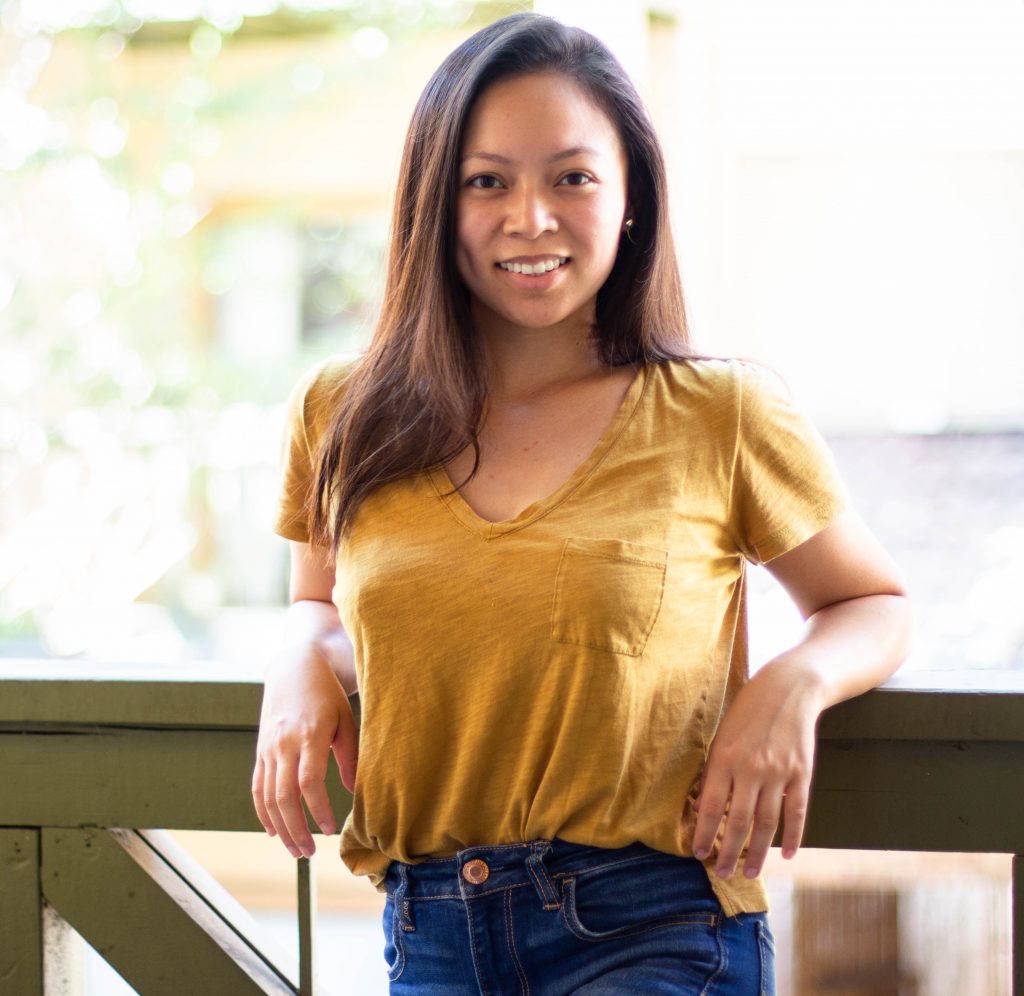
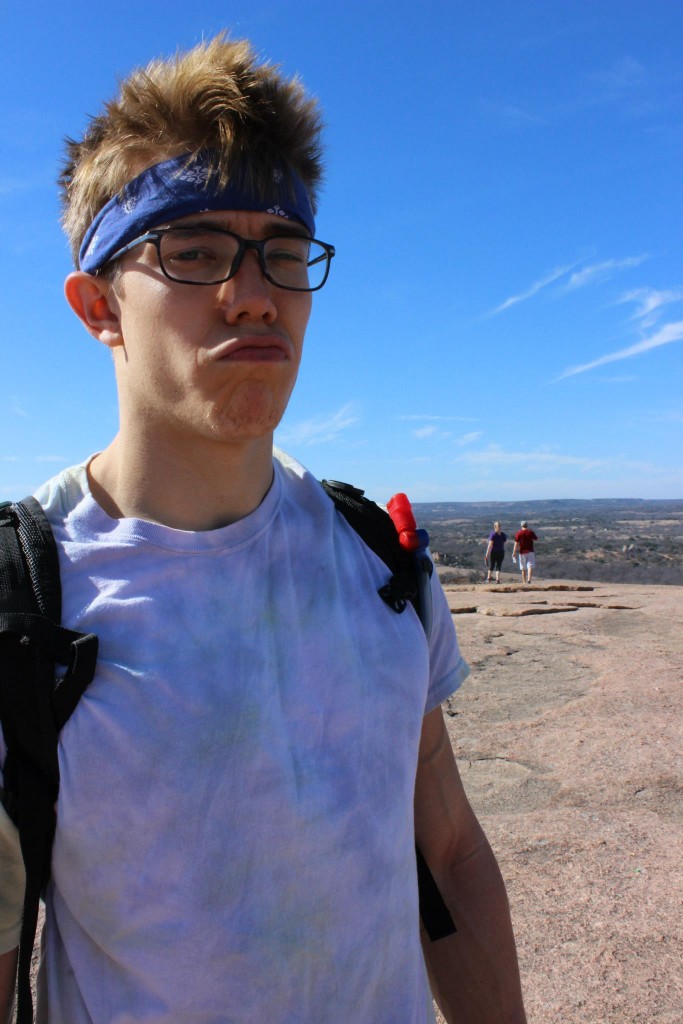

Fun Times with the Team
